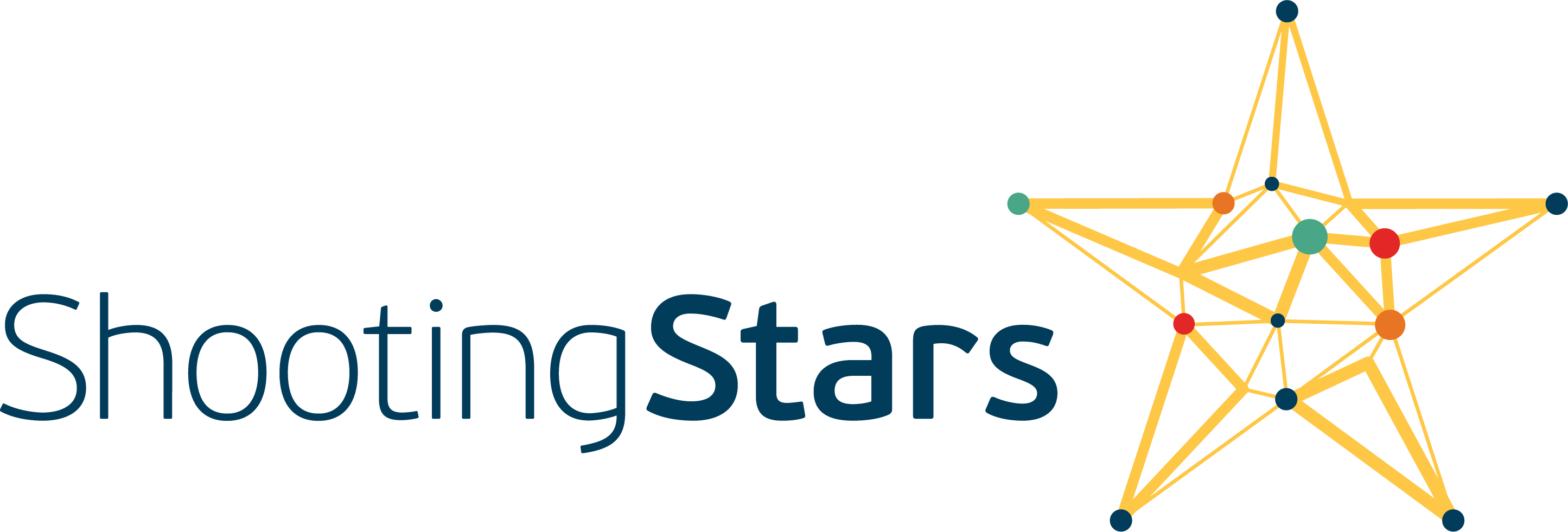Dear Beautiful Young Women
Kaya Kwopetok Koorlang Yok
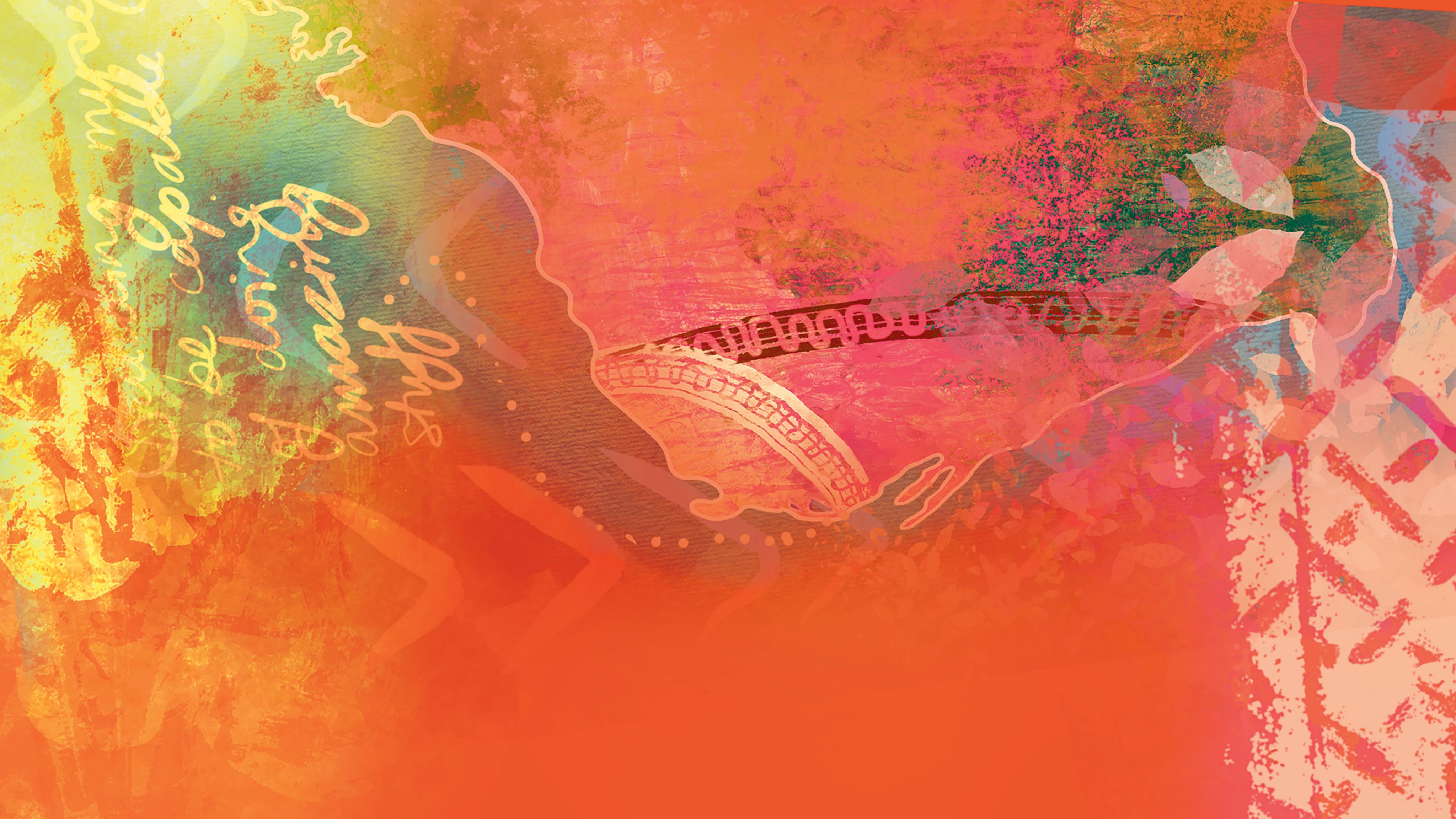
Since 2015, Shooting Stars - a program empowering Aboriginal girls and women - has facilitated more than 100 yarning circles involving nearly 1,000 participants. Kaya Kwopetok Koorlang Yok: Dear Beautiful Young Woman celebrates this process by inviting some of the women involved to share what 'success' means to them.
Beautifully illustrated by three Aboriginal artists from three generations of the same family, this book explores individual and community definitions of success, and invites young women to know and appreciate the strength of their ancestors. Explored through the Indigenous practice of yarning, the book features women from all walks of life, providing role models for people everywhere.
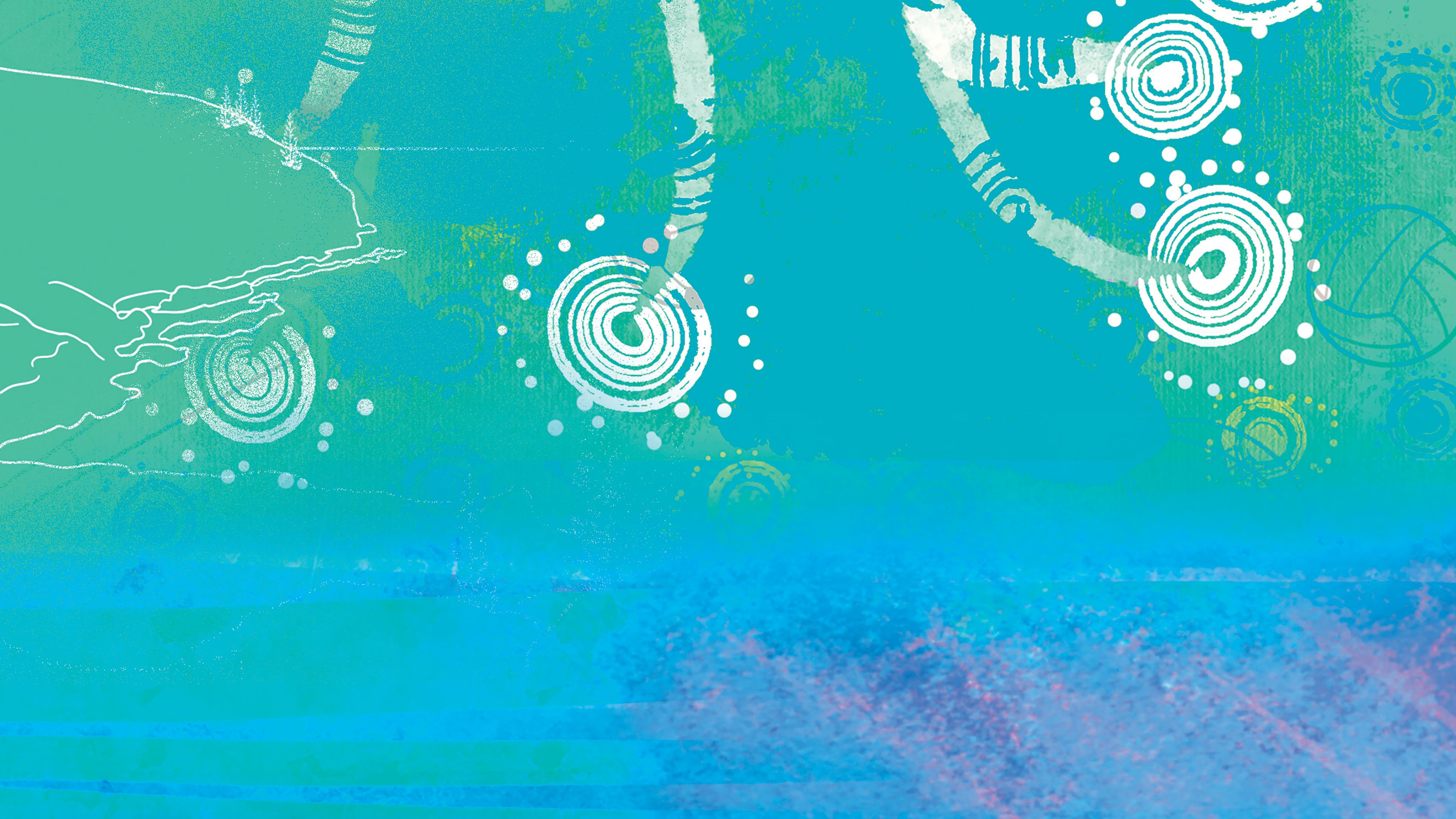
Glenda Kickett
Meet your challenges one step at a time
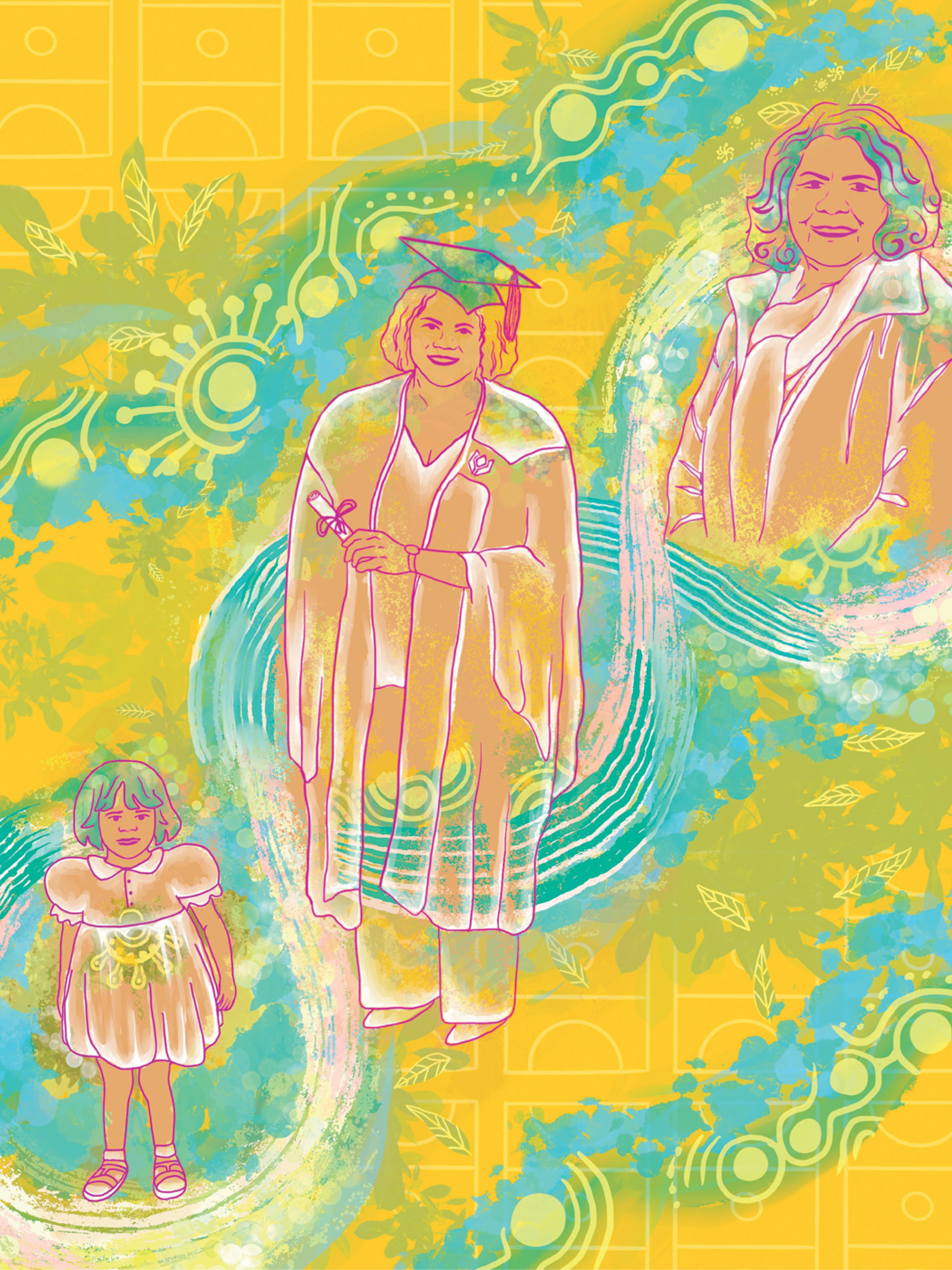
I am from Whadjuk country, which is my great- grandmothers’ country on both my mum’s and my dad’s family lines. I was born on Ballardong country, in a little town called Kellerberrin, which is my grandmother’s country on my mum’s side and my grandfather’s country on my dad’s side. I have a strong cultural connection to both areas through my mum and dad, and I lived most of my early years between my dad’s country and my mum’s country, before we moved to Perth on Whadjuk country when I was six years old and lived on Royal Street in East Perth.
I now work on Royal Street, and it’s good to come back because I have a lot of childhood memories of living here. In those days, it was where a lot of Aboriginal people and a lot of poor white people and Italians lived. It was a very poor area of Perth, and a tough place to live in the ’60s. We were poor and didn’t have any money, and lots of times we didn’t have three meals a day. I think back about those times and wonder, how did I get here? I think of my parents because it was hard for them, they had to make some tough decisions.

Carol Innes
Cultural connection is power
I’m a country kid. I grew up in a small country town three-and-a-half hours outside of Perth. Not a big town—it’s mostly farming and sheep out there. I’m one of nine children. We played sport—I played basketball, netball, hockey and tennis. We were actively involved in the sporting space, and that’s what kept us bonded to the community. I felt we weren’t a part of the community until we were on the team, helping the team win.
When I came of school age, we had to be at school, and if we weren’t at school we got into trouble—we had the welfare department coming and checking on Mum. We had to travel 40 kilometres for high school. Most of the other farming kids went away to school. At our school we had kids from town, kids from other regional towns and kids from a mission. We lived in a divide of town kids and regional townies. I didn’t like the inequality that was happening in front of us. I stood up for a lot of kids. I was also the student council representative for Years 8, 9 and 10.
Robyn Smith-Walley
Be true to yourself, and hold the space
My name is Robyn. My family comes from the South-West, and our country is Wiilman Noongar country, but I was born and raised in Whadjuk Boodja in Perth. I have a great connection between those places. I still have family down that way, but most of my immediate family are living up in Perth. I’d also like to acknowledge that I sit here today on Whadjuk Boodja, and pay my respect to all our ancestors of the past and the present.
My grandparents were from around Kojonup/Wagin area, just off Albany Highway. Both of them come from very big Noongar families. Their stories are very interesting, because they lived through periods when a lot of government legislation and policies affected Aboriginal people across the country.
Liz Booth
Share the journey
I was born in Northam, which is about
100 kilometres east of Perth. I was the eighth child in a family of nine. I have six sisters and two brothers, and my parents ran a livestock cartage contracting company. I spent many hours on the Great Eastern Highway with my dad, in those trucks driving the sheep down to Midland, and I knew just about every farm in and around Northam and the surrounding districts. I was known as Little Mac, because my maiden name is McManus, and I think once Mum and Dad had had a few kids people forgot everyone’s name, but they knew I was a little McManus. My younger sister and I were called Little Macs, and we still get called that now when we go back home.
I had an idyllic childhood, but in the background my parents’ marriage fell apart, and there was alcoholism and domestic violence. My mother left home, and we stayed with our dad. By that stage, the four oldest children in my family had moved on to Perth, and the five youngest were in Northam with our dad and attending school. Things got bad, and sometimes we were without food, without water, our telephone disconnected, our electricity disconnected. But I certainly felt very protected, and had a wonderful childhood in that small country town. Sometimes we wore no shoes. You let your feet sizzle on the bitumen. That’s a pretty sensational feeling. In the summer we spent our days at the swimming pool, living off Twin Poles.
Fran Haintz
Do the tough stuff, and fill your toolkit
The Haintz household was a busy one. I was the youngest of eight, who was regularly told how I got away with murder and was the spoiled baby. But I don’t think I was, and there’s a good reason.
I grew up with a disabled brother, Vinnie. He was the fifth child—a sister and three brothers before him, two sisters and me after him. Vinnie required a lot of love, attention and support. I didn’t even know he was different until I was about eight or nine. My sister Genevieve and I were playing too rough with Vinnie one day and we were annoyed with him, as would happen, being brothers and sisters. On this particular day, though, Dad had
to take us aside and explain why we couldn’t be rough with him anymore—we were getting too strong! And the penny dropped.
Vinnie passed away when I was sixteen. When he was born, the doctors had said he’d only live to about ten, but he made it to twenty-one. He had a great life, and he enjoyed it. He really, really wanted a twenty-first birthday, and he managed to reach that milestone. It was sad for us all when he passed away, but his life was well celebrated. I suppose you would have to say that he’s had a huge impact on our whole family and how all of us are today.
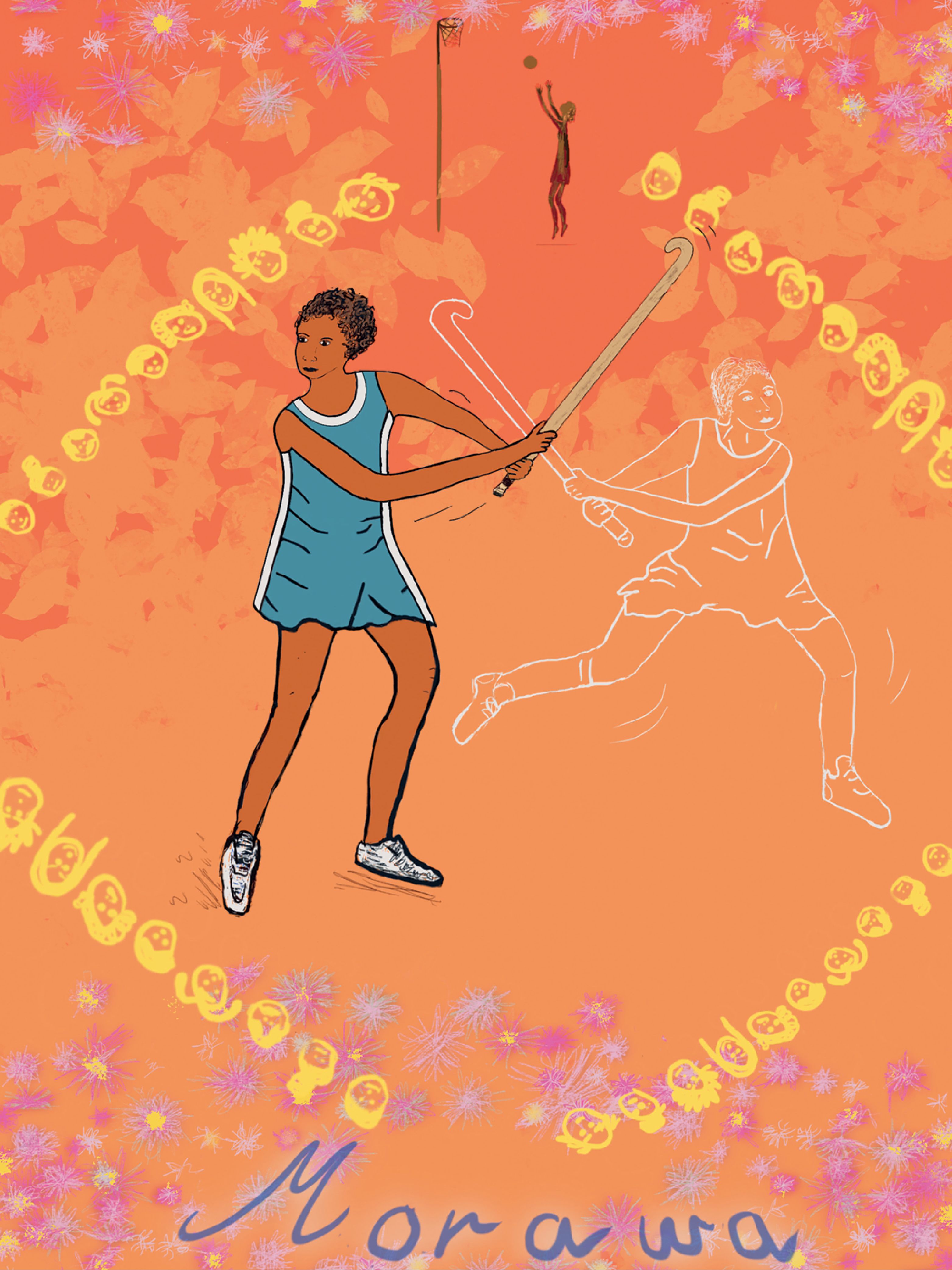
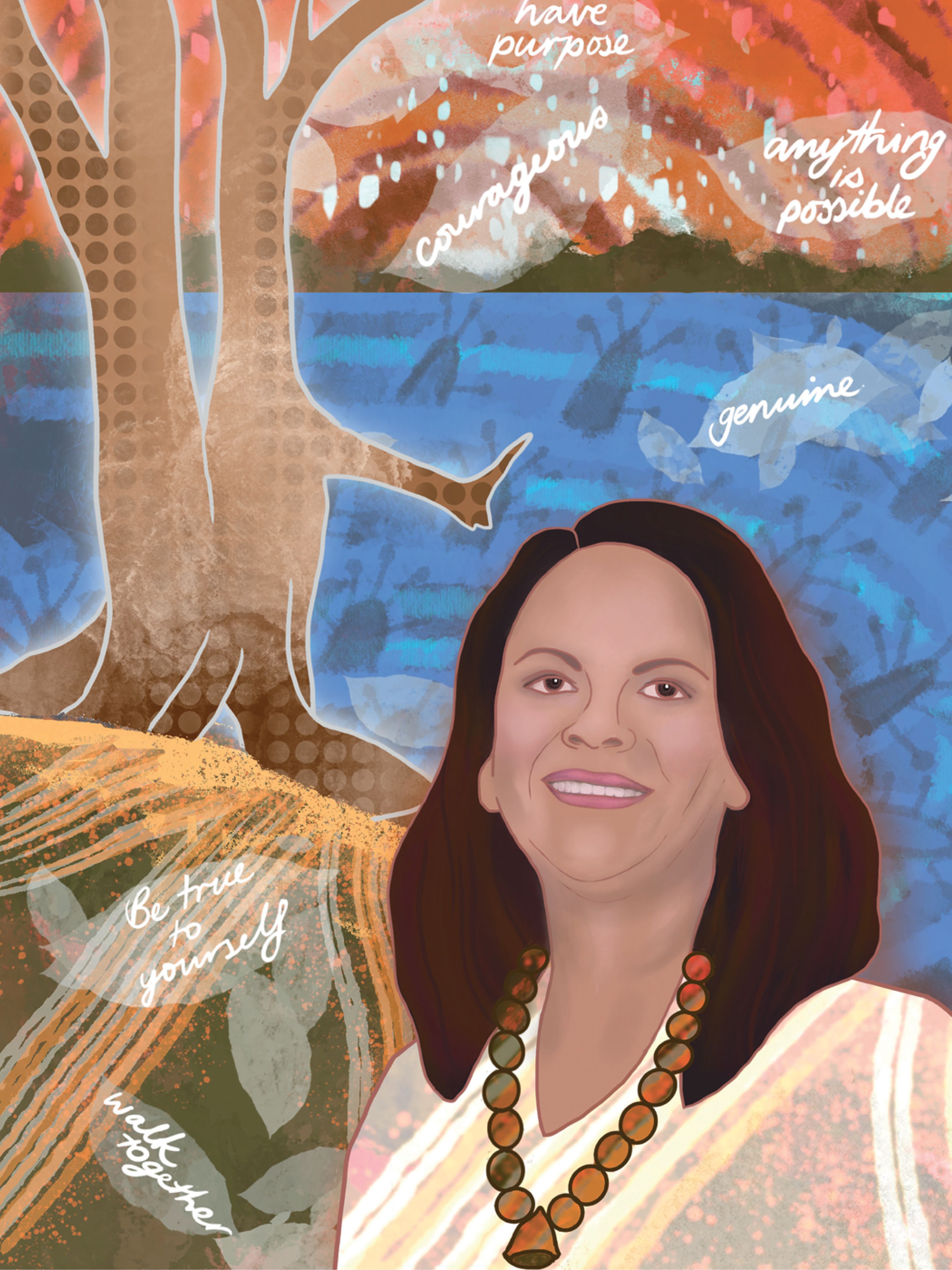
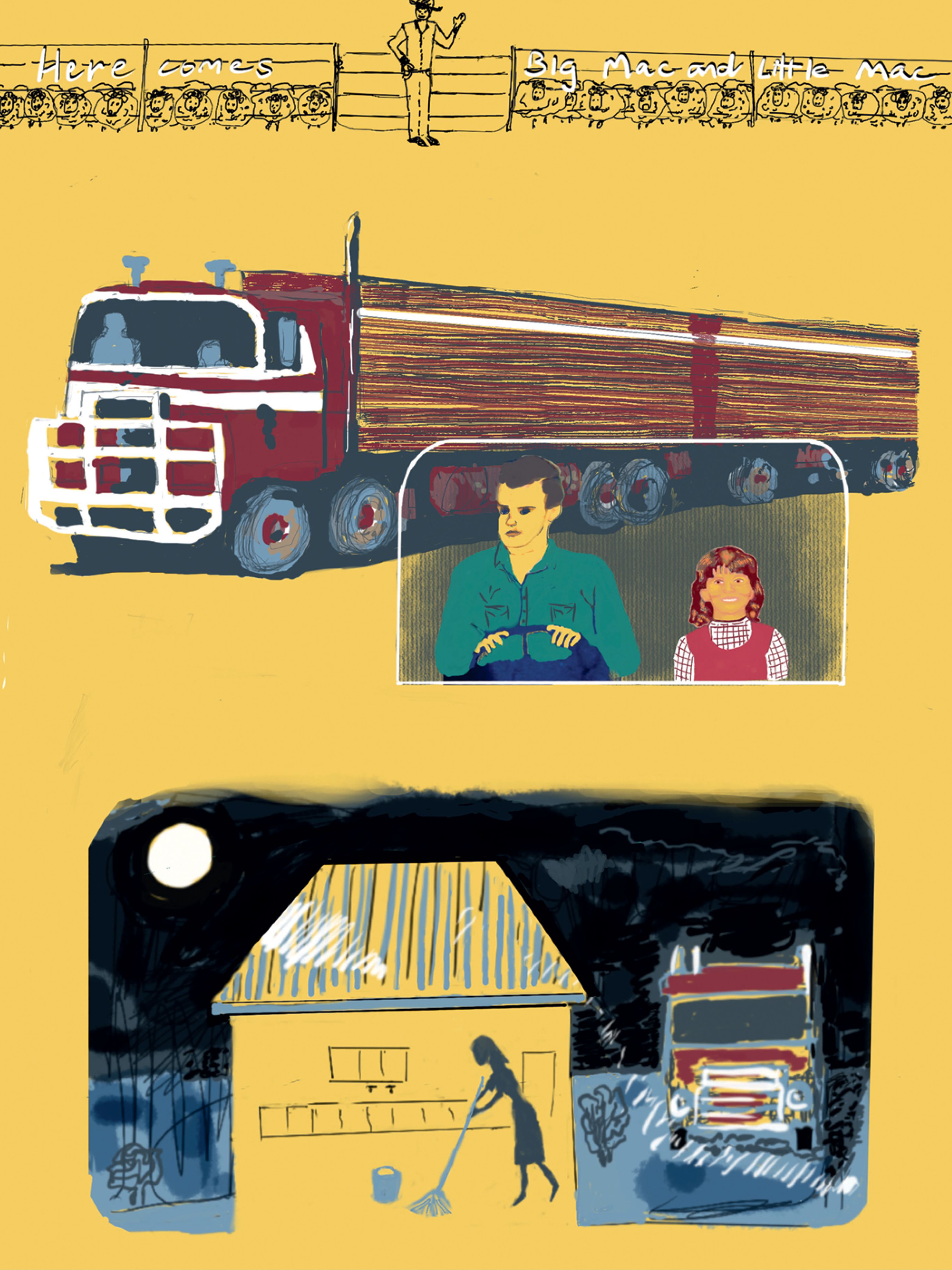
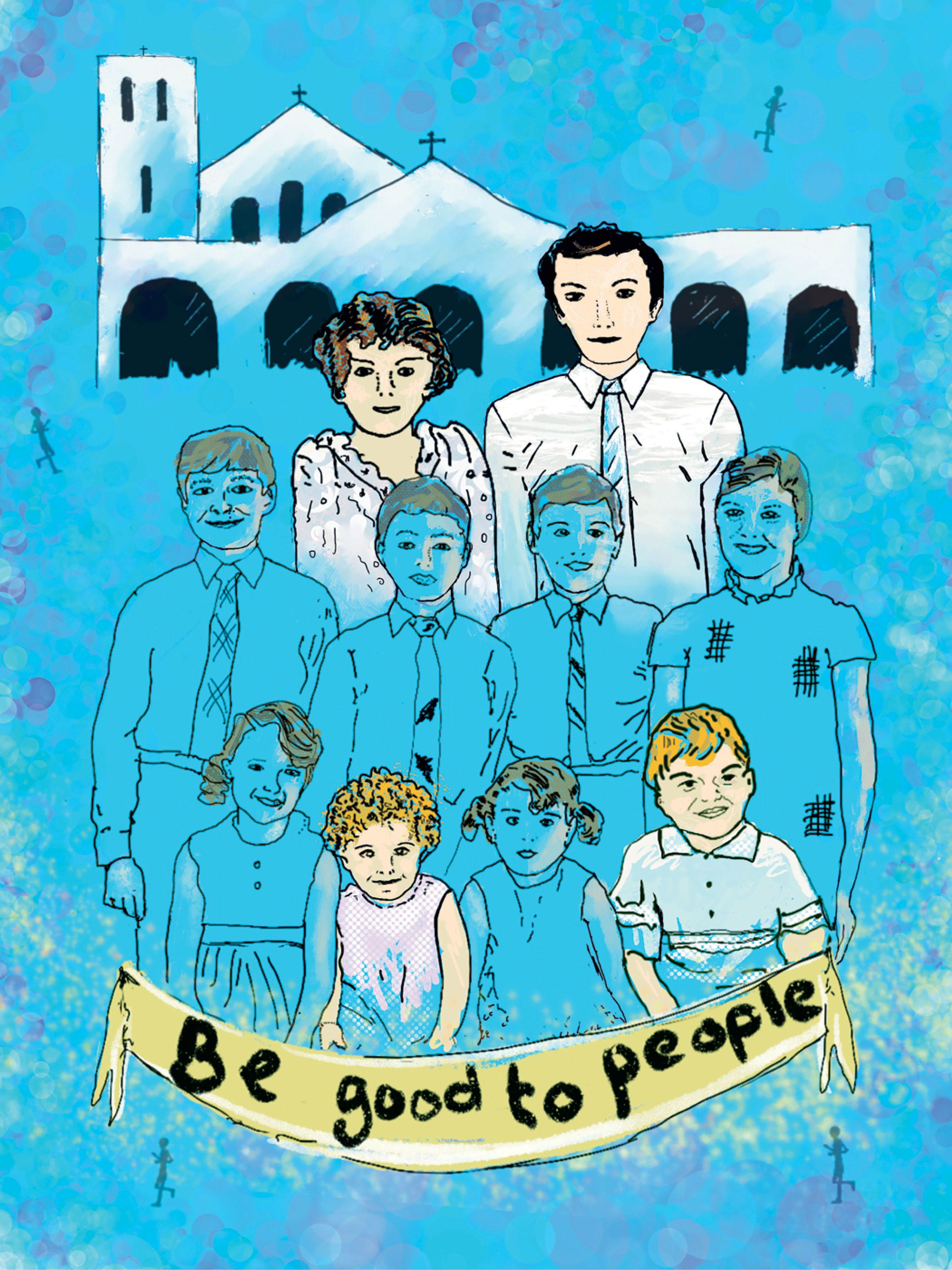
Rishelle Hume
Help as many people as you can
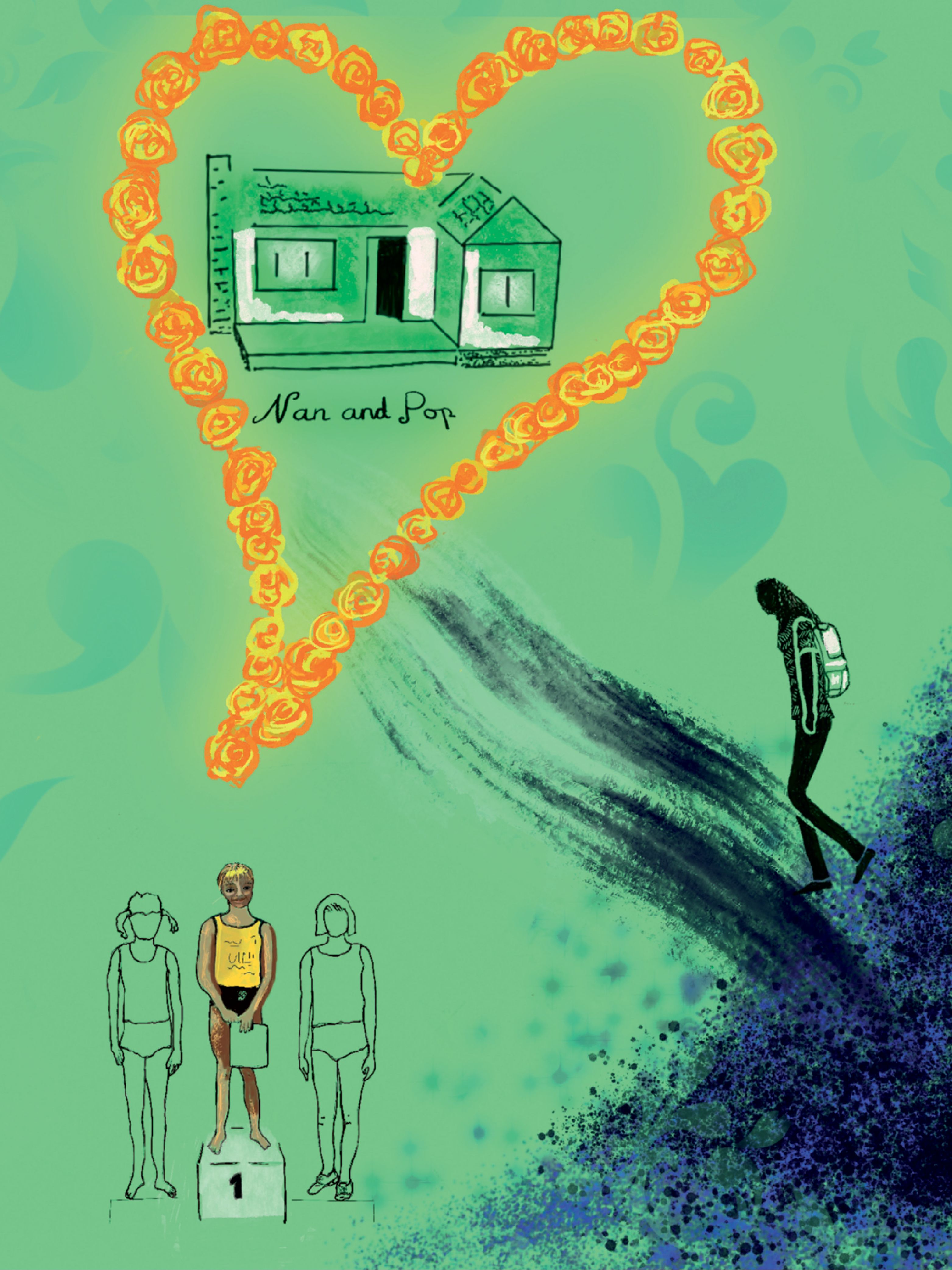
I’m a proud Noongar woman, with traditional
ties to Whadjuk, Ballardong and Gnaala Karla Booja peoples. I’m also a direct descendant and granddaughter of highly respected Noongar Elders Patrick and Lorna Hume. I grew up in Perth, in the suburb of Maddington. I didn’t have a great childhood. I come from poverty, we had nothing, and we battled most days. I remember lining up on many occasions for food vouchers outside DCP [the Department of Child Protection] in Armadale. It was embarrassing. Both my parents were unemployed and had limited education. Dad couldn’t read or write, and my mother left school at a very early age.
I was one of five children, and the second eldest. Dad grew up in an era when Aboriginal people weren’t permitted to go to school, so he didn’t have that educational background, and my mum was a stay-at-home mum; she was very young when she started having kids. My mother had my brother at fourteen, and me at sixteen. By the time she was twenty- three she had five kids. I know what it’s like growing up with nothing and going through really, really tough times. It was really tough, and we went without many things in life.

Bernie Kop
Give back - it's good for your soul
I was born in Perth, and I grew up in Guildford.
I have six brothers and sisters and two stepsisters. I grew up in a split home, but I thought I had the best of both worlds going to Dad’s every fortnight. We went camping every year to Busselton. Mum and Dad were big on camping and fishing and going away on family holidays.
We did a lot of fishing and outback, outdoor stuff growing up. My mum is a strong, open woman who welcomed our friends. Mum’s house was like a halfway house—it was always full of people, my siblings and our friends.
Sonia Tait
Be happy in yourself and in what you're doing
I’m a Nykina woman from the Kimberleys. I grew up in Derby. I consider myself quite lucky because I grew up with quite a group of staunch women around me. I was able to learn a lot about my language, my culture and what it means to be a strong independent woman. I got that from my grandfathers as well, but the fact that I grew up with strong women has defined who I am today.
My mum left my dad when I was just a baby. She worked three jobs to put a roof over our heads and food on the table. She’s never once gotten child support or family payments from Centrelink or anything like that. My mum is by far one of the hardest workers I have ever known, and she’s extremely, extremely staunch and strong about women’s rights
and women’s independence and driving positive change for everybody. She’s now going into her eighth year as CEO of the Winun Ngari Aboriginal Corporation. She was appointed to the Indigenous Advisory Council to the prime minister, which she did for a few years. She is strong in her beliefs, and she stands strong with her morals. My mum always taught me to work hard, to treat everybody with respect. I never saw any prejudice from my mum when I was growing up. She loved and accepted everybody for who they were.
Lowana Corley
Know what you want
I was born in Boulder in 1978. I spent the first two years of my life living in Kalgoorlie, because my dad was working on the mine there. Then I moved to Darwin, where my mum is from. My mum is a Kungarakan woman, and we come from the Paperbark people of the Finniss River, which is about 100 kilometres from Darwin town centre, in what’s known as Litchfield National Park. That’s our grandmother country. Our grandfather country is more out towards Arnhem Land, with the Warumungu people. When I was about six we moved to Perth, because Dad got some work down here.
When I first came to Perth I was bilingual, and I had to learn how to follow all the instructions in English and the school rules. I went to a Catholic primary school in Carlisle called Holy Name, and I was one of only two Aboriginal students at the school at the time. The other Aboriginal student was from Wyndham, and she became my best friend all through primary school. Our families became friends, too. I do remember primary school being a challenge, as a little kid straight from out of the bush, but I wasn’t alone.
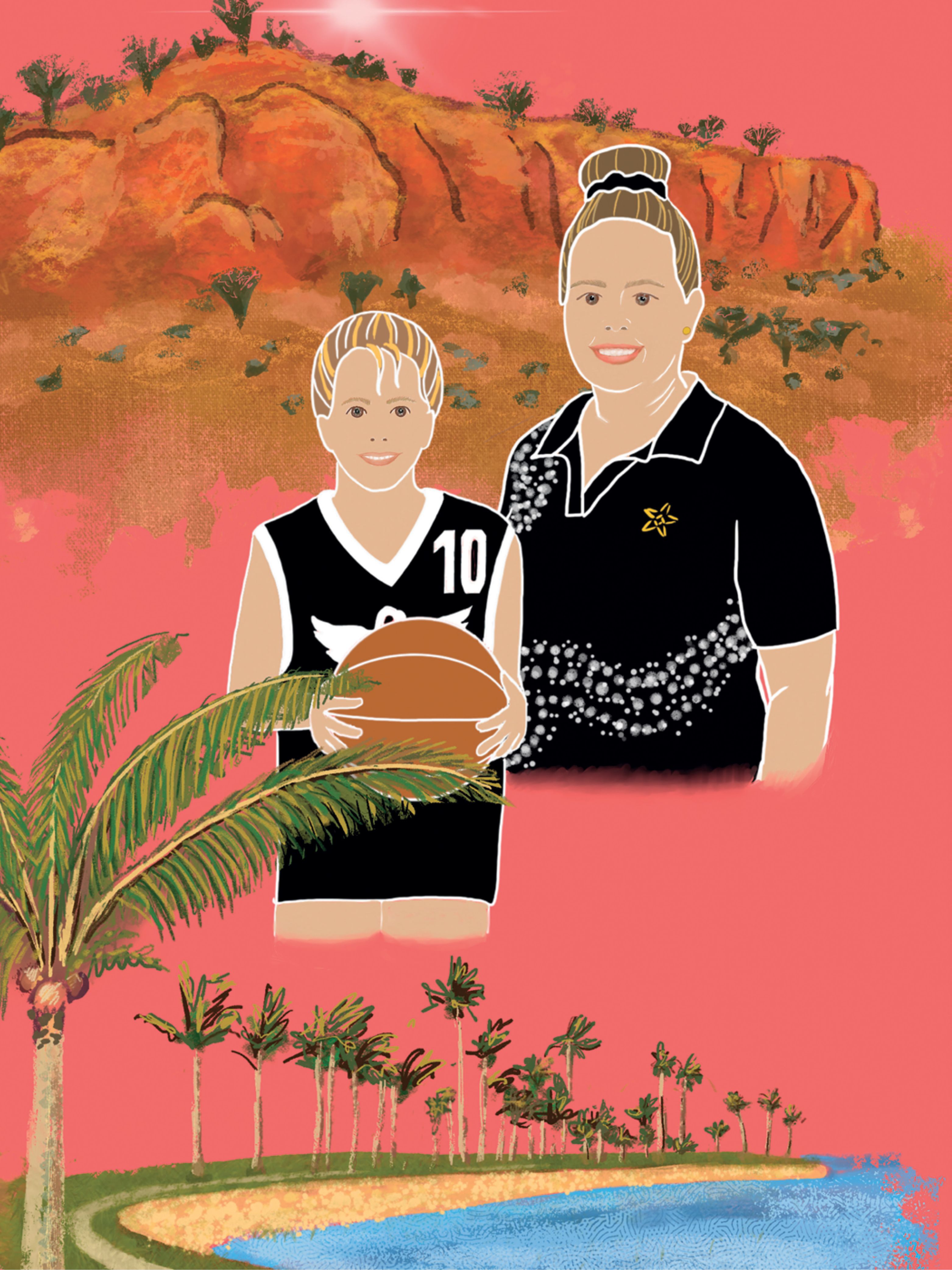
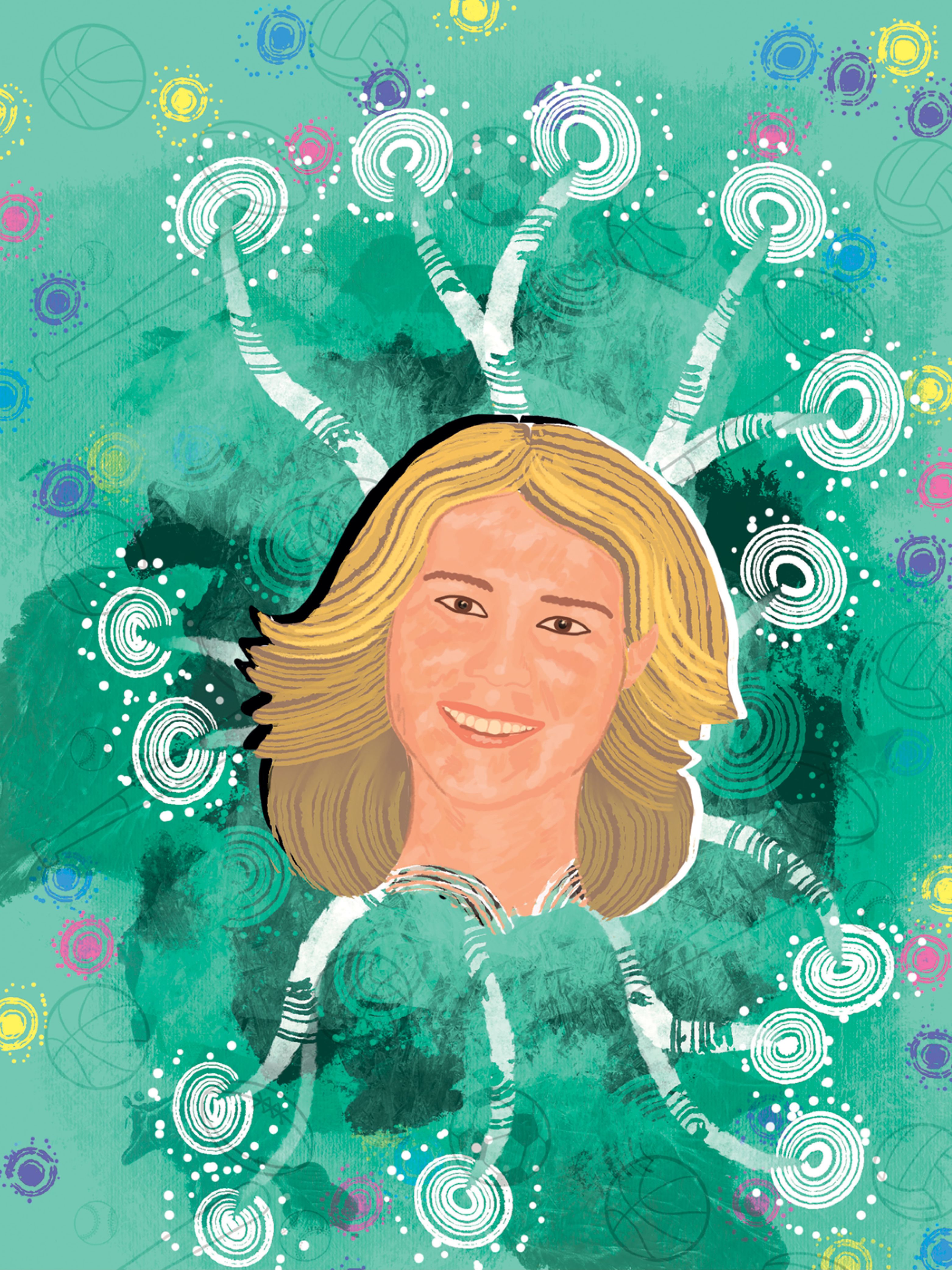
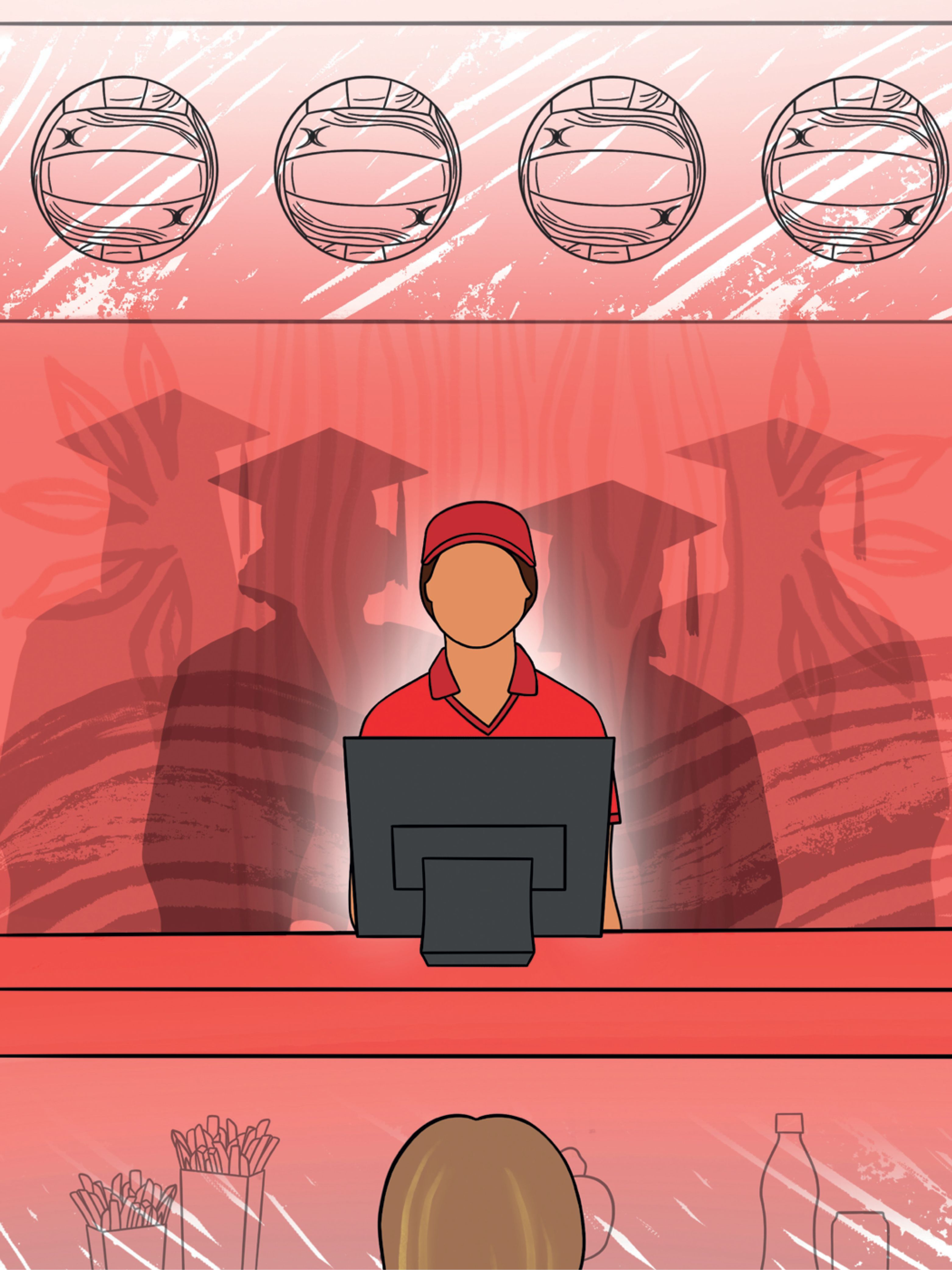
Emma Chinnery
Take the opportunities that work for who you are
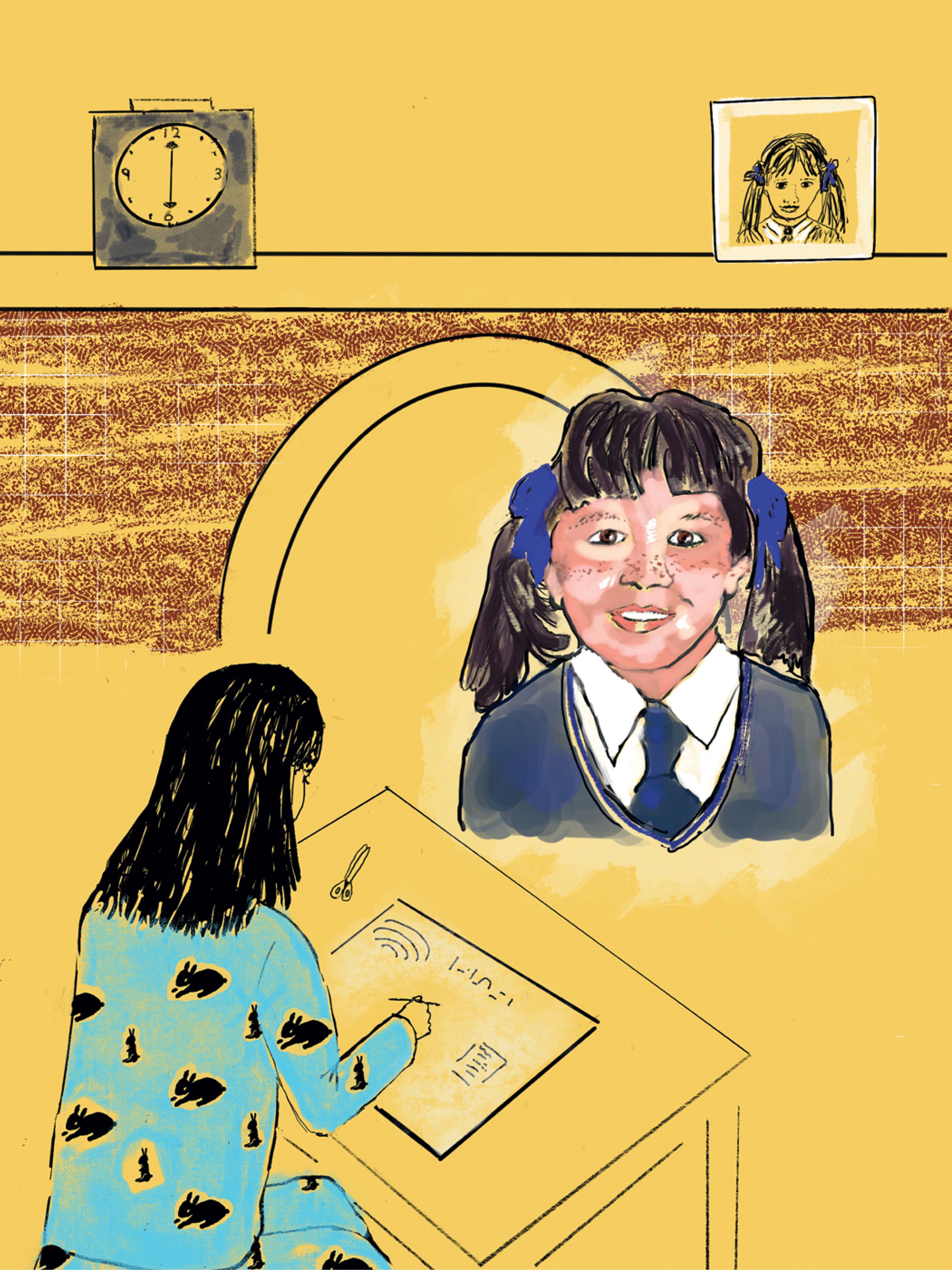
I’m from Perth, and I grew up in Perth. Both
my parents’ families have been here for a few generations. My dad’s family are English and Irish, my mum’s are the same with also a bit of Spanish and Italian. Mum and Dad are amazing. I always really appreciated and felt very lucky that my parents were together and were in a strong marriage. My mum is one of seven, and so I’ve got about twenty cousins on Mum’s side. Growing up, everyone was around Perth and we were close-knit. I spent a lot of time growing up at both of my grandparents’ houses.
Dad was a civil engineer and Mum mostly stayed at home. I led a very lucky and privileged childhood but, to me, it was all so normal. I loved school. I was very passionate about studying. I can remember being only in Year 3 or Year 4 and getting up at 5 am or 6 am to work on a project, a little crafty school project, before everyone was awake. I just had to. I loved working on school stuff. I played netball at Matthews, where the Gold Netball Centre is now, from when I was eight or nine right through to now. I was also into debating and the history club.
I was just a real nerd.

Want to read the rest of these amazing stories? Buy yourself a copy of Kaya Kwopetok Koorlang Yok here.
Lacie Riseborough
Build trusting, supportive relationships with strong women
I was born and grew up in Dover, which is a middle-sized, working-class town in the south- eastern part of the UK. I had a very happy childhood, with a younger brother and lovely parents. When I was growing up I was really into sport, and used to do a lot of netball and swimming. We were very lucky that my mum didn’t work. She gave a lot of her time to planning the week around different activities for me.
At primary school I had a nice group of friends. It was quite a small, local primary school, and I’d walk to school every day when I was old enough. I’d walk my brother there as well. I was a really good girl—my mum would say, ‘Hold his hand,’ and I’d hold his hand the whole way. If he didn’t hold my hand I’d tell my mum that he didn’t. I was the type that worried terribly. If a teacher said that somebody had done something wrong in the class, even when I knew I hadn’t done it, I’d feel terribly guilty about it, as if I had done it. I never did anything wrong, and I never got a detention or anything like that, but I was always worried that I would.
Helen Ockerby
Be comfortable in your own skin
I’m Bardi and Noongar, so I have ties to the north and south of WA. In the early days we were down south in Perth, because my mum’s from down there, so I spent a lot of time on Noongar boodja. Eventually we ended up moving to Broome; my dad is from the Dampier Peninsula, which isn’t too far from there. My dad’s connection to culture led us to do a lot of camping, and going out on country, fishing and crabbing, and sitting down listening to all the old people, and fishing with the old people—old-style, just camping under the stars, no tents, just a mattress and blanket. My dad used to just make sure the land was clear so we could lie down.
I grew up on the seaside. A lot of my people eat, live and hunt off the sea—our traditional staple foods are fish, turtle and dugong, and bush foods on the land. I remember walking through the bush looking for bush foods with my dad, lots of times. My dad always provided us with opportunities to camp and go fishing and practise cultural practices and be around people who spoke language. I’m very proud of what I’ve come from and of my family and my people.
Latoya Bolton-Black
Find peace within yourself, and stay grounded
I was born in Armadale, in Perth, but then my family moved down to Narrogin, where my grandfather was connected, so I grew up in Narrogin. My mum is Yamatji and my dad is Noongar. I’m really closely connected to the Noongar line, because I grew up down here. Mum was adopted out when she was a baby, to a white family, and I spent time in my childhood with Mum’s adoptive family. I’ve also met my maternal grandmother and my aunties and uncles and other cousins on the Yamatji side, so we know our links to our Yamatji family too.
I’ve got two brothers and two sisters. Mum and Dad separated when I was five years old, and my siblings and I grew up in Narrogin with my dad, my nan and my auntie. We were raised by a village—that saying is true for us. My family and my community moulded and shaped who I am today.
Lauren Seelander
Be proud of what you achieve, in the moment
I am a Minang Ngadju woman. I grew up in Geraldton, in WA. I had a great childhood on the beach, enjoying all the seafood. We spent a lot of time in Mount Magnet, because my pop is from there. We would go out there for the school holidays, and my dad would run the youth centre. I grew up learning my culture, going out bush, hunting and stuff.
I loved school. I miss going to school. From primary school all the way to Year 11 I went to Catholic schools. I went to St John’s in Geraldton—it’s in Rangeway. I did all my primary school there, and then for high school I went to Nagle Catholic College. I was basically one of the only Aboriginal kids at high school. I had to catch the bus into town with all the public school kids. I would get off the bus and walk across Maitland Park, next to the cathedral, and after school I would do the same, then wait for the bus to rock up. I copped a lot from all the public school kids, waiting for the bus in my private school uniform. Most of the kids at the bus stop were Aboriginal, and they would say things like, ‘She thinks she’s white. She thinks she’s better than me.’ They also said things like that because I was really good at sport, I went to Singapore for athletics during that time, and I was always in the papers and on the news in Geraldton for athletics. They always saw me as a white person, yet I knew more about my culture, and went out bush more than they did. That got at me a bit, but I just kept my head up and kept doing what I was doing. I knew it was just jealousy, because I was doing all those things.
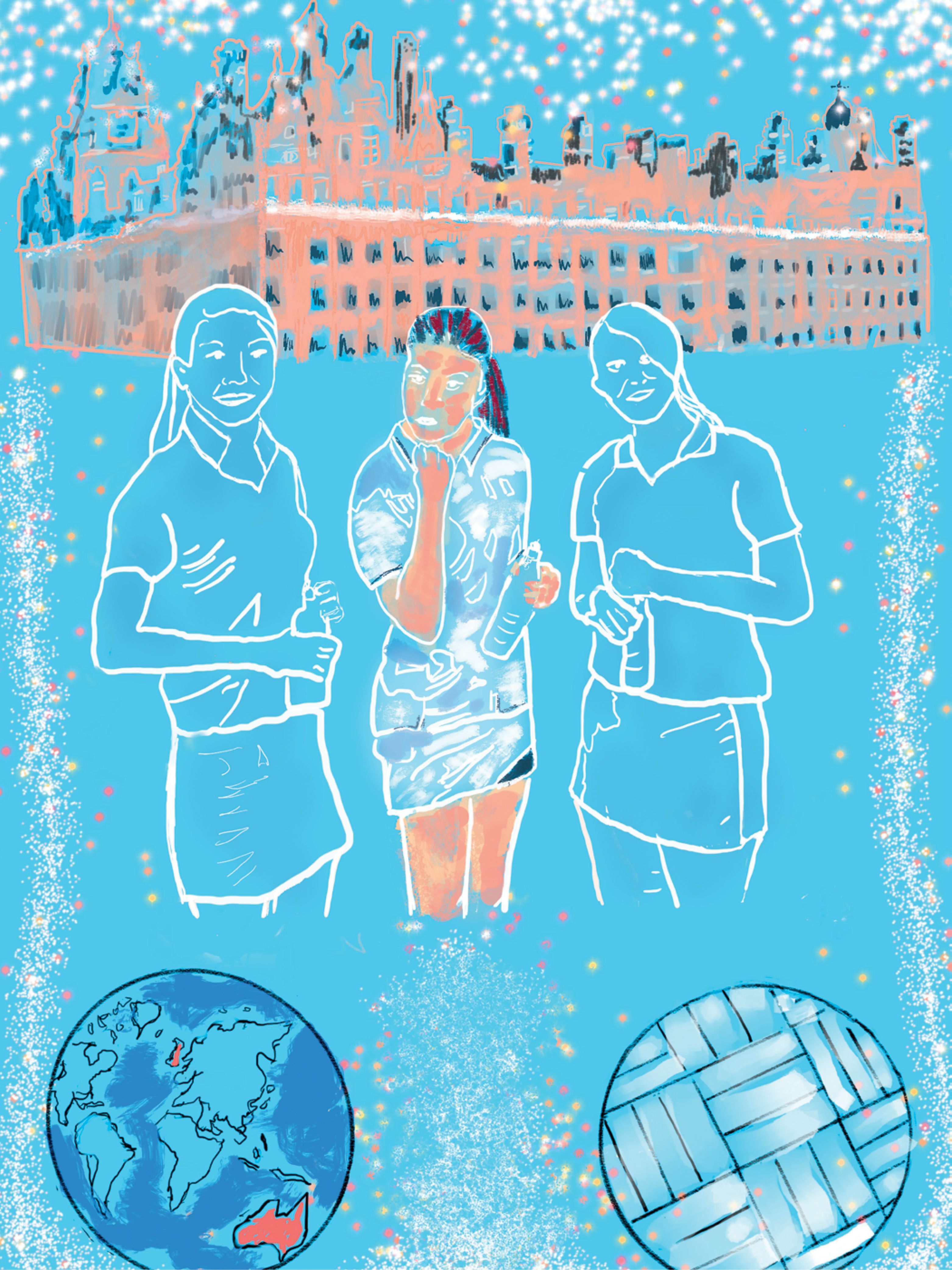
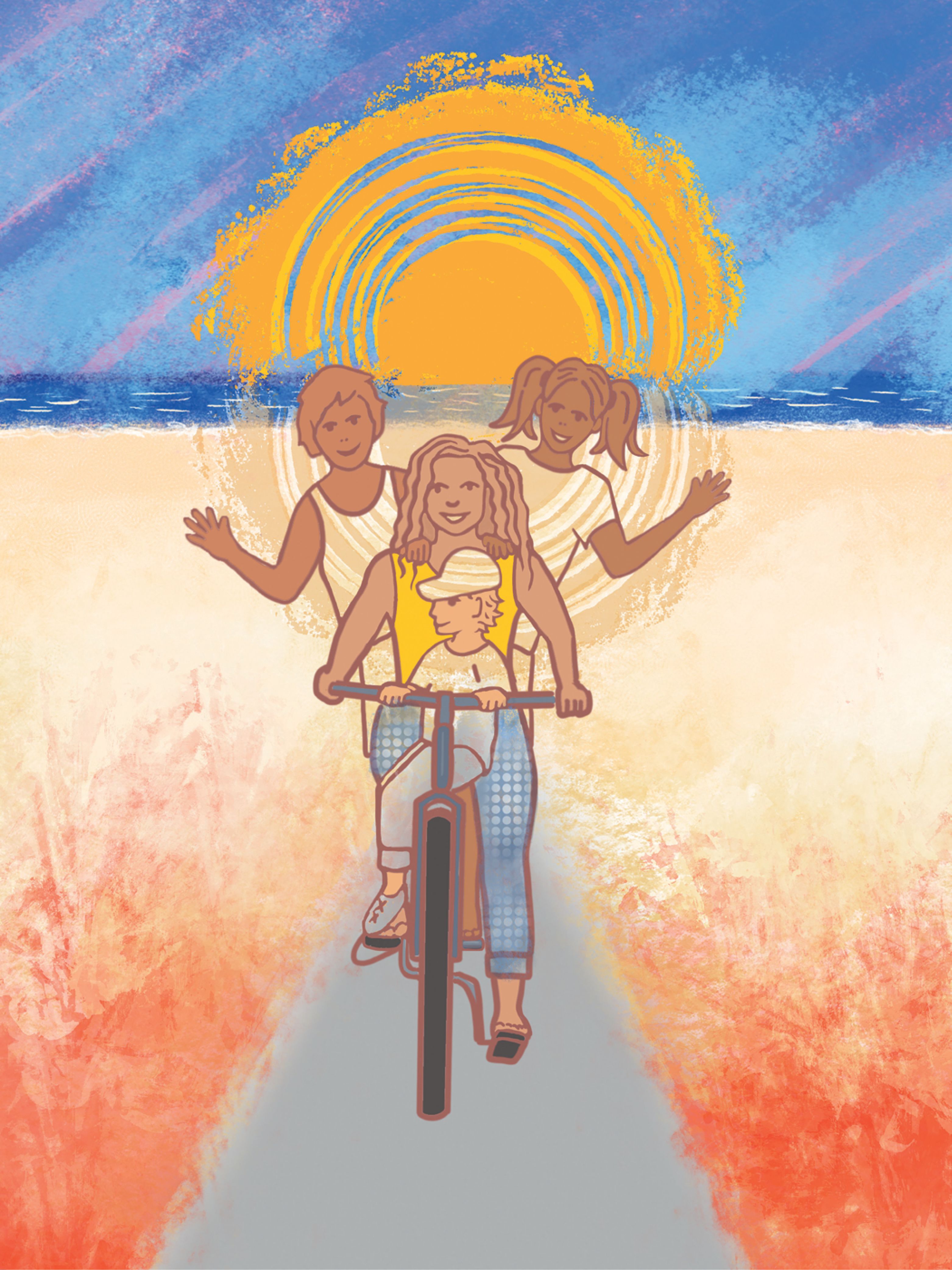
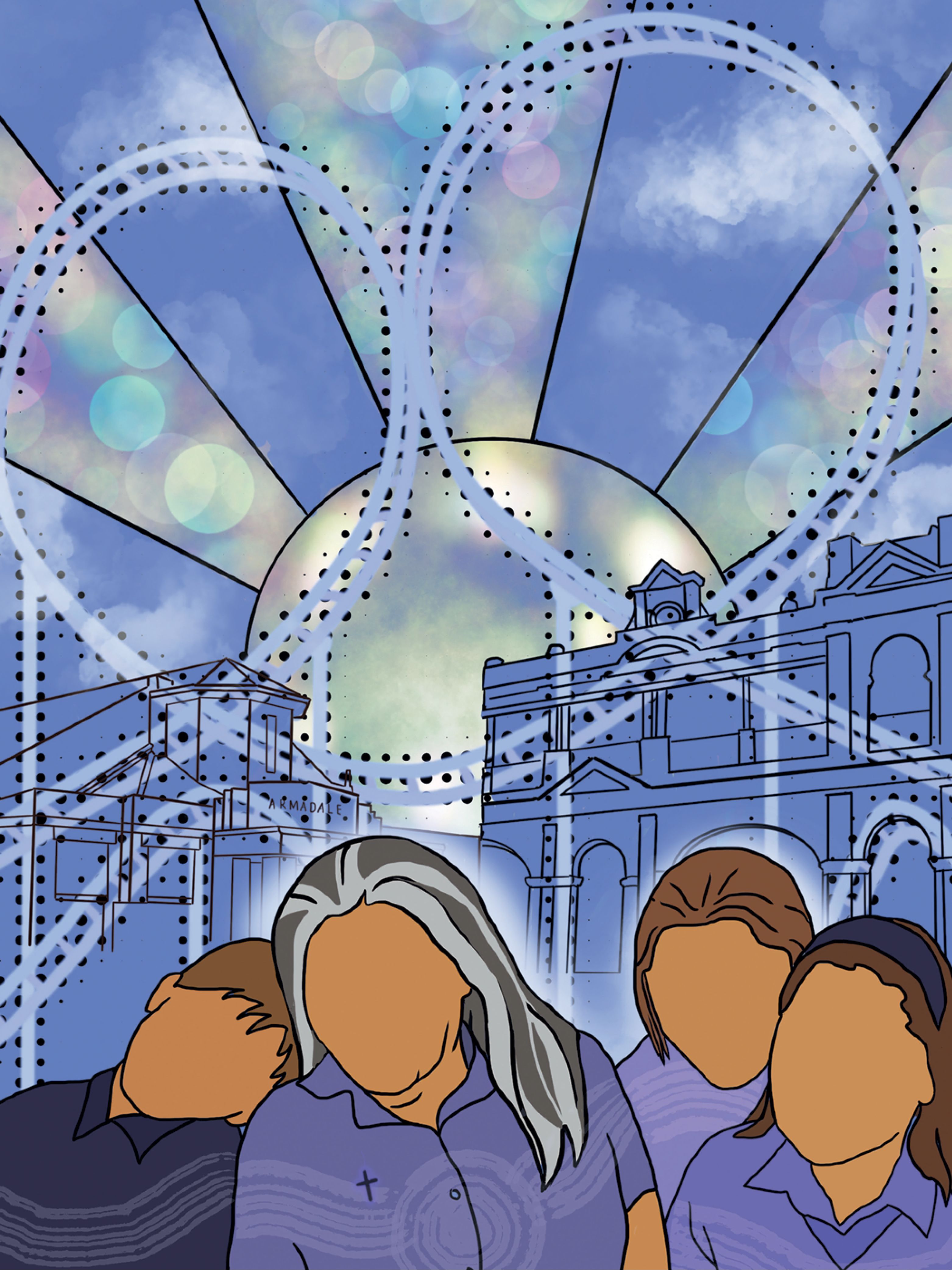
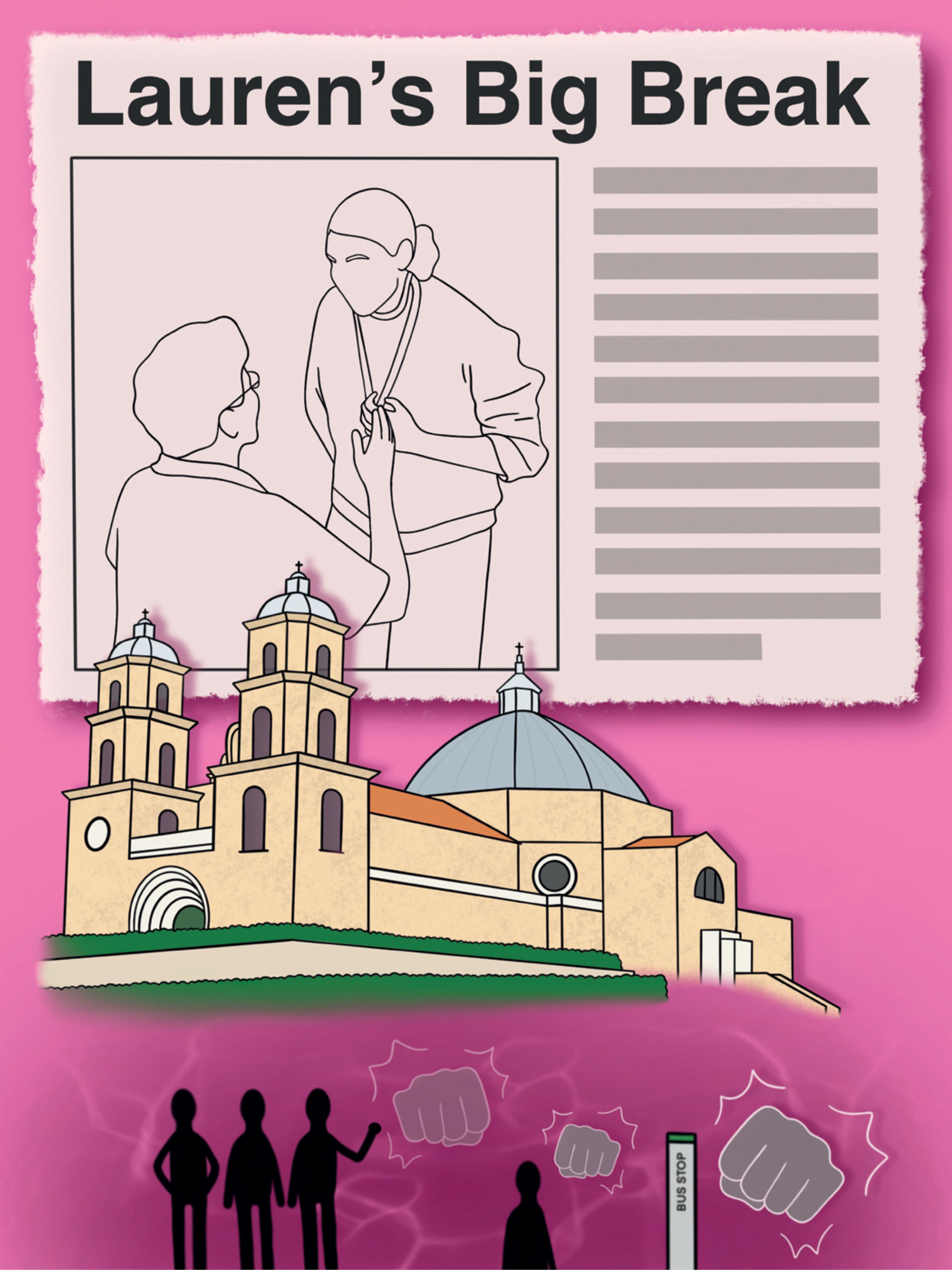
Jhaniele Fowler
What you have is enough

I’m from Montego Bay, Jamaica. I lived the first nineteen years of my life in Montego Bay. I grew up with most of my mum’s side of the family, in this big family house with my aunts, uncles and cousins. I was the only child from my mum until I was eight years old, then my little sister came into the world.
I had a really cool time growing up in Montego Bay. Montego Bay is one of the most beautiful parts of Jamaica. We have so many beautiful beaches. One of my favourite pastimes growing up was when my mum would take us to the beach, on Sundays mainly. Sunday beach days were always so amazing. I always looked forward to going to the beach on Sundays.
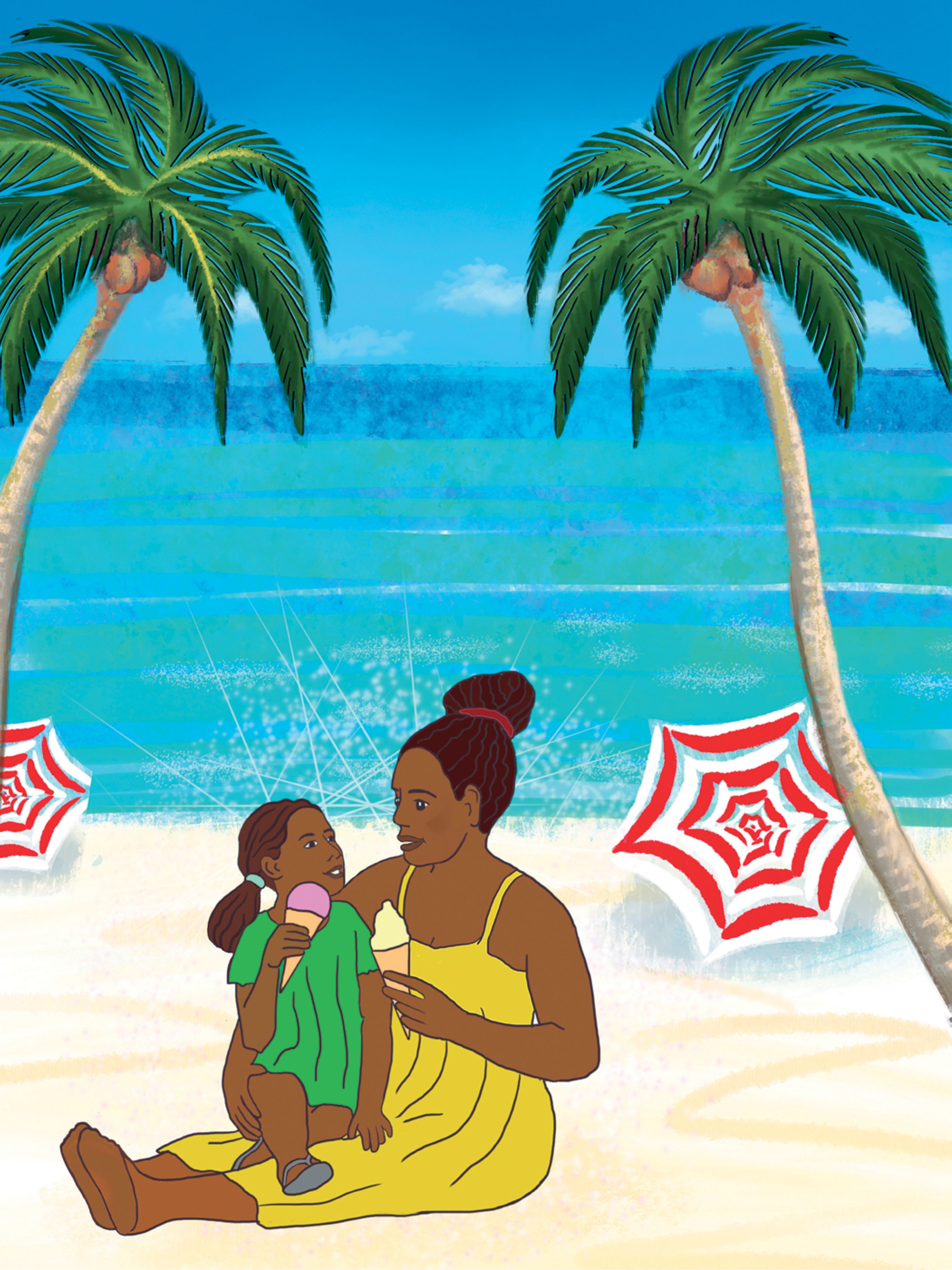
Julie Dupen
Invest in the moment
I was born and grew up in Sydney, in the Hills area. I was always an active, sporty kid. My mum used to say that I went to school to play sport. Cricket and touch football were the main sports that I played. Sport shaped who I am, and gave me a sense of belonging.
I wasn’t that academic at school. I was put in that bucket [where it was assumed] that I was never going to finish school. That was hard to overcome, and I can still be a bit self-conscious about things that I write.
Verity Simmons
Appreciate the little things in life
I come from Grafton in New South Wales. I’m a country girl—I grew up on a bit of a farm out there with my nan and pop, my mum, my sisters. My cousins were around sometimes. It was usually a busy little household. I went to a small school— Grafton Public School. I struggled at school a fair bit, to be honest, just with being in class and learning and concentrating.
I played every sport under the sun. Sport was my outlet. I was lucky that my mum and my nan gave me every opportunity to play sports. They would drive me everywhere. I made my first netball state team at fifteen, in Sydney. I went to trials, and I remember it took about five weeks to pick the team, because there were that many girls. There were thousands! They were all Sydney girls—there weren’t many country kids. I rocked up to trials in this baggy skirt and baggy shirt, and they all had lovely dresses and all the shoes. But I made that first state team, and Mum drove me down to Sydney and back every weekend. It was a good eight hours down in the car, and eight hours back, and I missed heaps of school because of it. Sometimes we’d get the train—that was thirteen hours! That was the worst. But I had a really dedicated mum, and she gave me that opportunity. My sisters were also amazing, with me stealing Mum away a fair bit due to sport.
Tiare Lesa
Do whatever you do with all your heart
My name is Tiare Kelena Lesa. I’m from Porirua in Wellington, the capital of New Zealand. I’m proud to be from New Zealand. It’s such a beautiful country. My heritage is Tokelauan and Samoan.
I acknowledge my cultural side, but I’m also just proud to be a New Zealander—a Kiwi. A big part of how I’ve grown up to see the world is from that lens back home.
I have two brothers and one sister. I’m the oldest. All my cousins count as my siblings too, because they always come over. It’s just part of our culture. I have my mum and dad—they’re still together. We grew up in that family unit. My number-one cheerleaders are my mum, my dad and my nana. If I had to pinpoint the three top people who have had a huge impact on me, it would be those three. But in reality, I was brought up and raised by the whole tribe back home—my whole community. I give credit to every Elder, every cousin, everyone that’s poured their piece into shaping me from a baby. I was fortunate to grow up in a loving, tight family. My parents have a tight bond with their siblings and their cousins. They have a deep love that they have passed down to me, and I want to pass that deep love on to others.
Jade McGuire
Stick to your word
Dad’s family are from Whadjuk and Ballardong country, and Mum is white Australian. Growing up with the two cultures was always interesting. Finding a balance between the two was always fun—comparing the two families and having a laugh at the differences. Mum’s got two brothers, and there are ten siblings on Dad’s side. I have one brother.
I grew up in Bull Creek; Mum and Dad are still there. It’s a quiet little suburb. I went to the local primary school through to Year 7, which was fun. It was nice and close, and I got to walk to school all the time. I loved primary school, and I had close friends there.
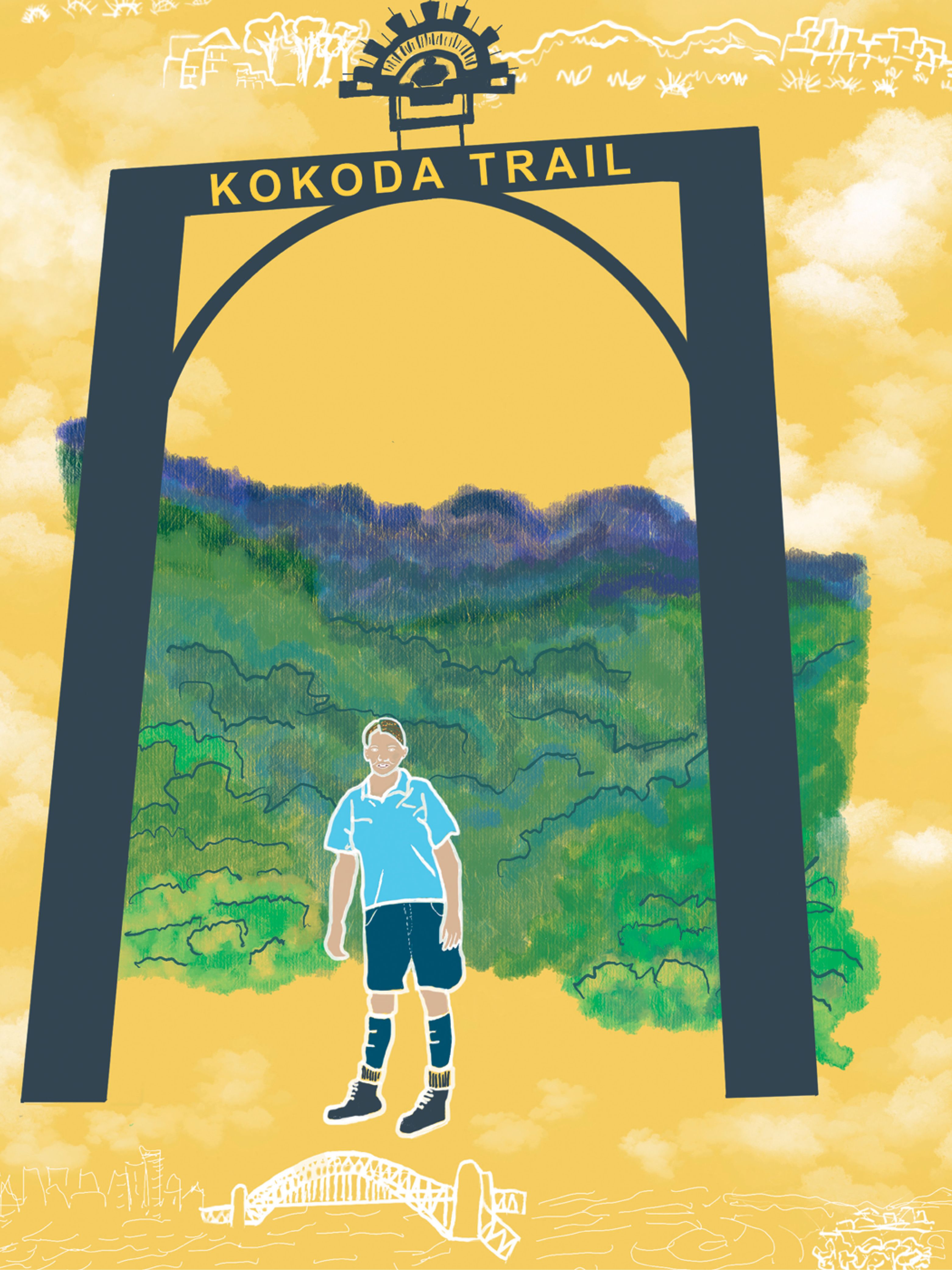
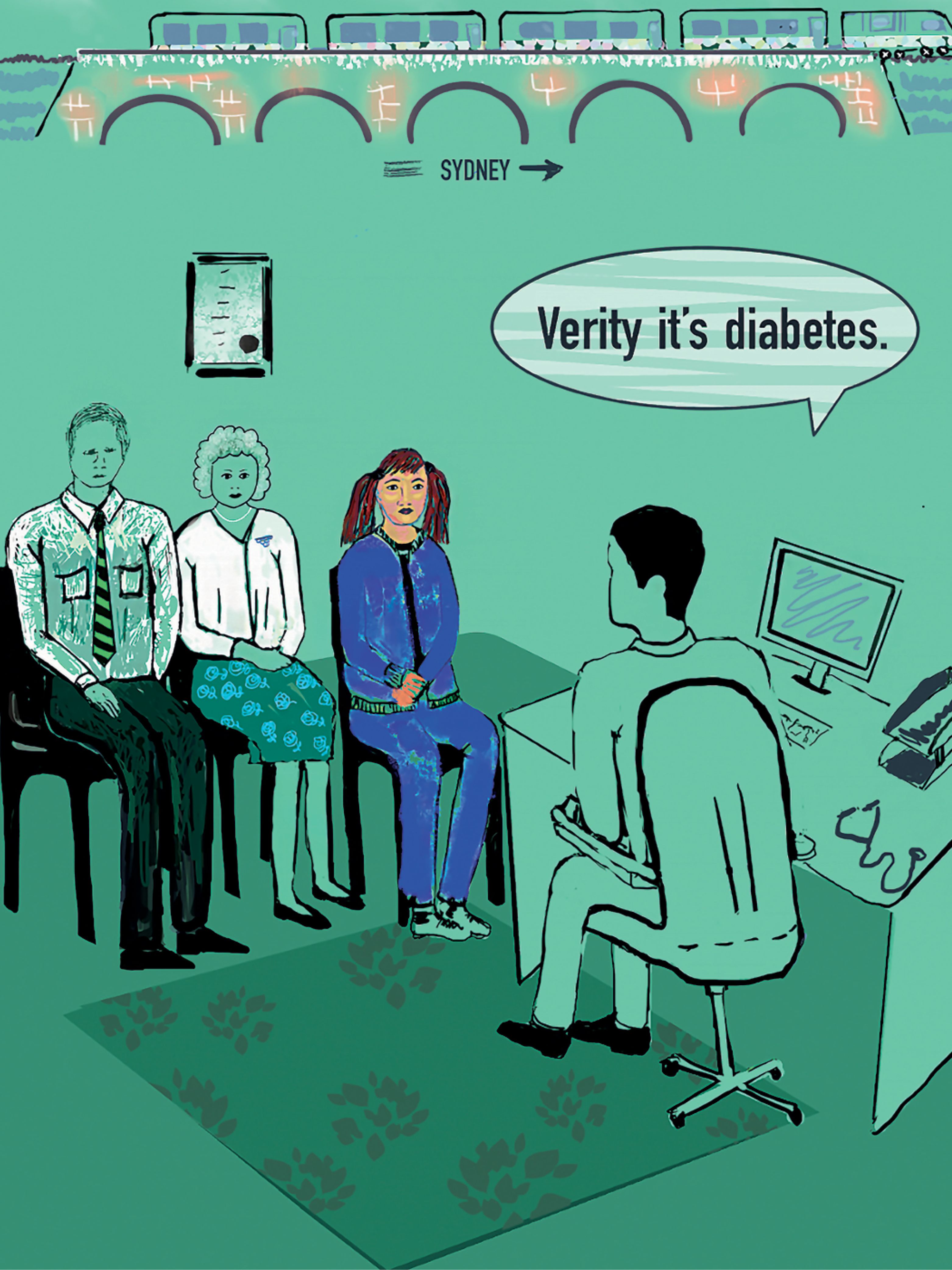
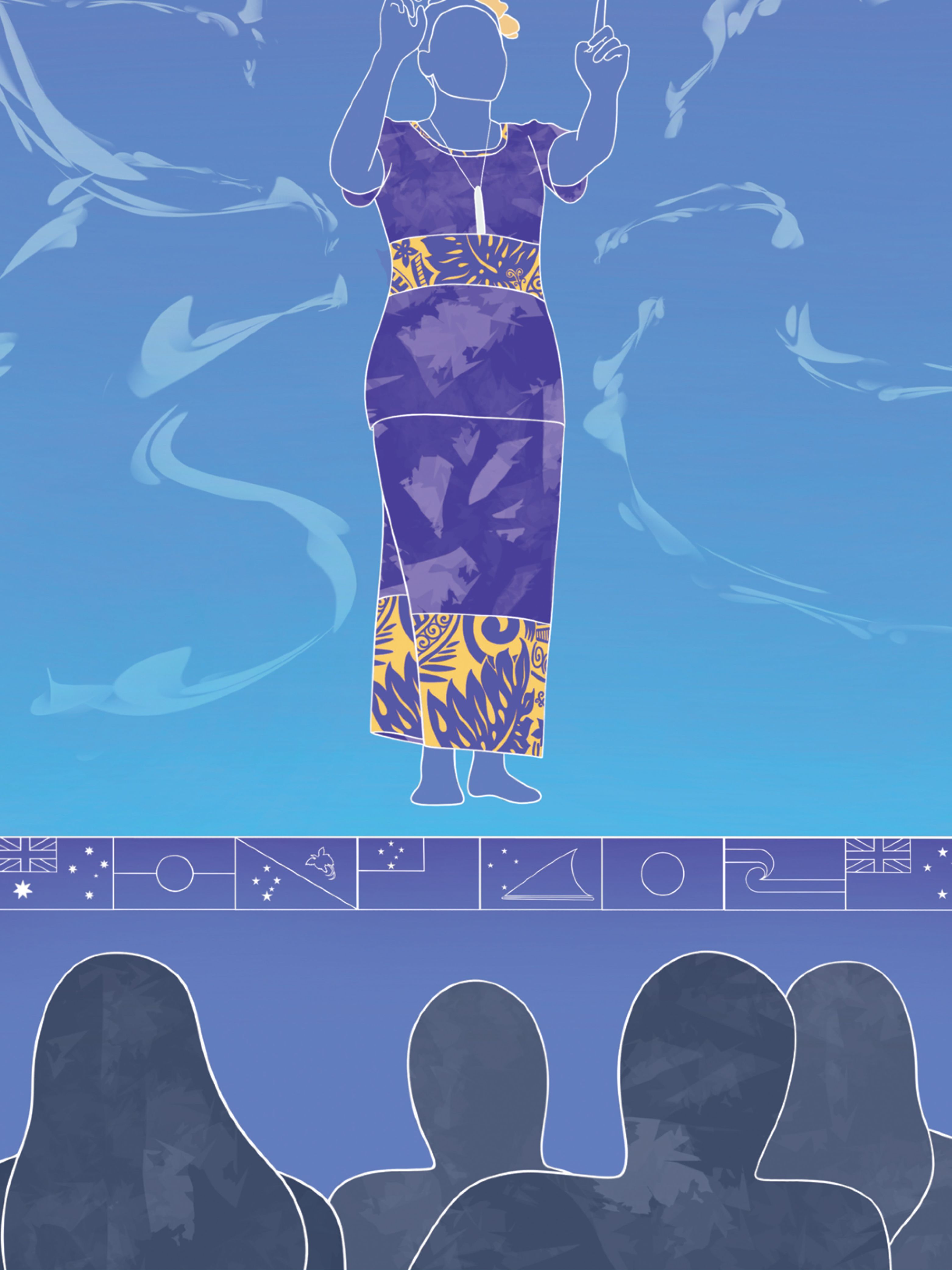
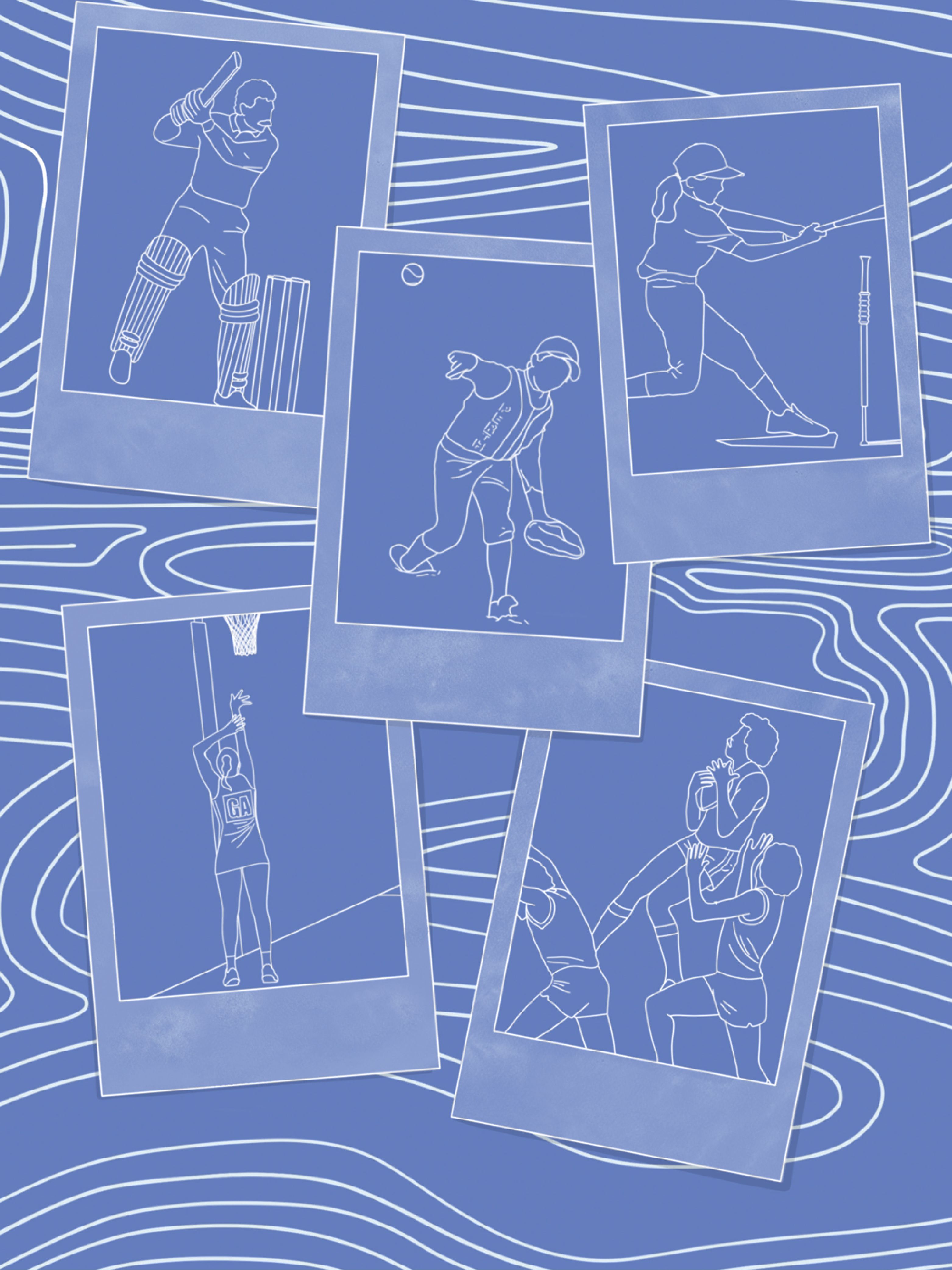
Haylee Rivers
Grow yourself first
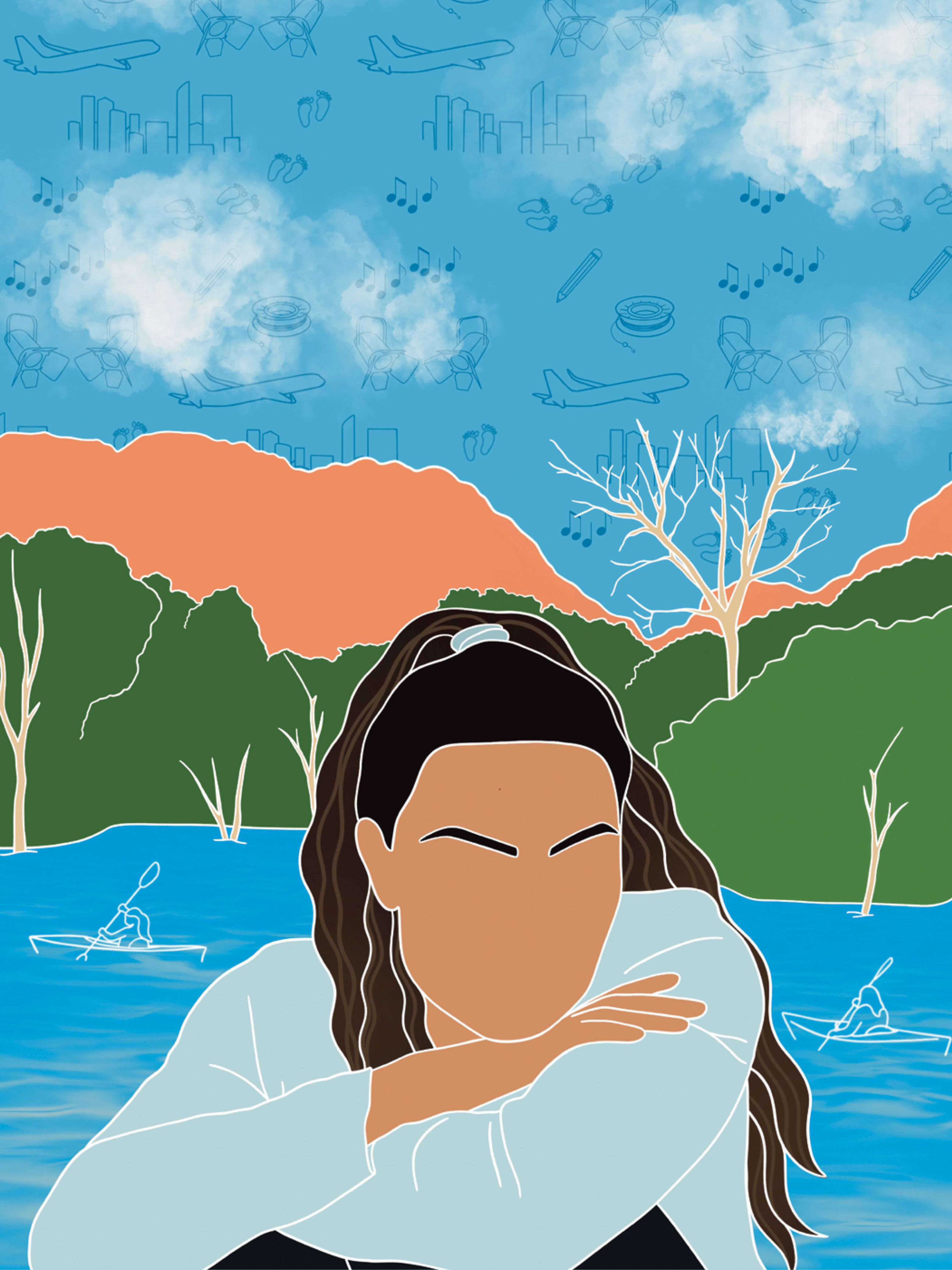
I was born and raised in the east Kimberley region of WA. Halls Creek is my home, where I spent the majority of my childhood. My family did move around a little bit. I lived in Queensland, Broome, Perth and Turkey Creek. When I was eight, we moved back permanently to Halls Creek.
I’m one of five children. I have one older sister, two younger sisters and one older brother. My older sister has a different mum, so she grew up down in Perth with her mum’s family. My brother, two sisters and I grew up very close to our extended family. We spent a lot of time out bush— we’d go out for the weekends and go camping, fishing and swimming. I was very fortunate to grow up where my family are from. I got to know our extended families, and I learned about our culture. I was very blessed to have that. I was always very active—I loved climbing trees, I’d play on the trampoline, I’d play cubbyhouse outside, skipping, marbles, anything. I was open to trying different things out. I grew up playing a lot of sport.

Tiresa (Resa) Foai
Start with a positive mindset
I was born and bred in Lake Taupo, New Zealand. I’m the oldest of six children, and right up until intermediate [the final two years of primary school], our whole family lived with Papa and Nanna—my mum’s parents. My family are very spiritual, with our beliefs and values, and my family, God and our culture have helped
to shape my outlook on life. I had an amazing childhood, growing up with all my cousins. My Papa—my grandad—was a huge part of my upbringing, especially with the values he taught me. I would not be the person I am today without his guidance and love and the teachings he passed on to me. I have so many memories of him. I know that he watches over me and my family every day with so much pride and joy.
I was nine years old when I was told that I’m not Māori, and it broke my heart. I was the leader of the kapa haka [traditional Māori dance] group at my school, and I was always doing the welcoming ceremonies at school. When I was nine or ten, I asked my parents to sign my kapa haka form for this big festival. My uncles and aunties were all there, and my mum asked, ‘Why are you doing kapa haka?’ I said, ‘For our people,’ and everyone started laughing. I joined in, laughing with them, but
not knowing why. Then they said, ‘Resa, we’re not Māori.’ I went to my granddad, my nanna, my uncles, my cousins and aunties, and I asked them all, ‘Am I a Māori? Are we Māori?’ And they all said, ‘No.’
Courtney Bruce
Be present, and enjoy what you're doing
I’m a born and bred West Aussie—I’ve been here my entire life. I grew up down south of the river, on a bit of land at Mum and Dad’s with my two younger sisters. We went to the local primary school. It was good—it had a real community feel, because it was such a small school.
I played netball when I was younger, but I didn’t properly start until I was twelve. Mum and Dad had tried to make me play—they were like, ‘You’re really shy and introverted. Go get out there and play!’—but I didn’t really like it. It wasn’t until I went to high school and my PE teacher was a netballer that I really started playing. When I did start playing again, when I was twelve, netball did force me to come out of my shell and put myself out there. If I hadn’t done that, I’d still be just as shy and introverted as I was when I was younger.
Alana Christian
Put in one hundred per cent
I was born on Norfolk Island, in the South Pacific. My heritage stems back to the Bounty mutineers, when Fletcher Christian organised a mutiny against Lieutenant William Bligh and his crew. I’m seventh generation to Fletcher Christian and his Tahitian wife, Miamiti, also known as Mauatua.
Growing up on Norfolk Island was total freedom. I grew up outside, adventuring. Every weekend, my best friend and I would venture to a new part of the valley and make a map of it. I loved school, as well. A lot of the teachers were from Australia, because we are technically part of Australia, so our curriculum is Australian. We didn’t get to learn any history of Norfolk Island and its people through school—our knowledge of our history came from our grandparents—but once we moved into high school, there was an option to study Norfolk language and culture.
Olivia Lewis
Intend to be your best possible self
I’m one of five children—I’ve got an older brother and three younger sisters. I grew up down Rockingham way, in Wellard. When I was about six, we moved to a five-acre block—not quite a farm, but we grew up in the bush. Mum was a stay-at-home mum who raised all of us. Dad owns a business as an electrician.
I didn’t love school. I liked it at a young age, and then I think I got a bit lazy and relied on natural ability to get me through. I’m not very good in the classroom—I’m definitely more of a kinaesthetic learner. I like doing things, and I like getting out and about, instead of sitting in a classroom and taking notes. But overall, school was a positive experience.
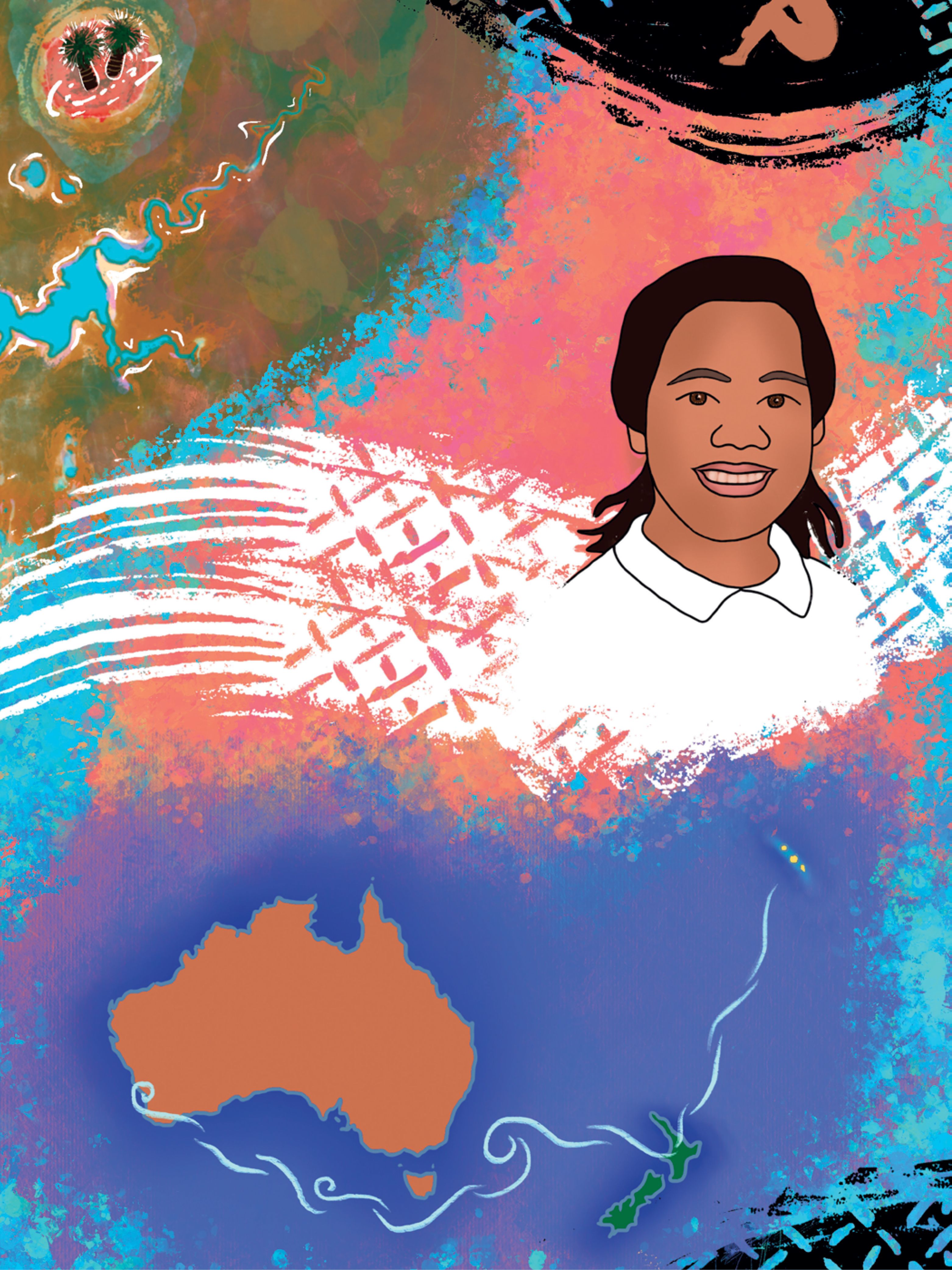
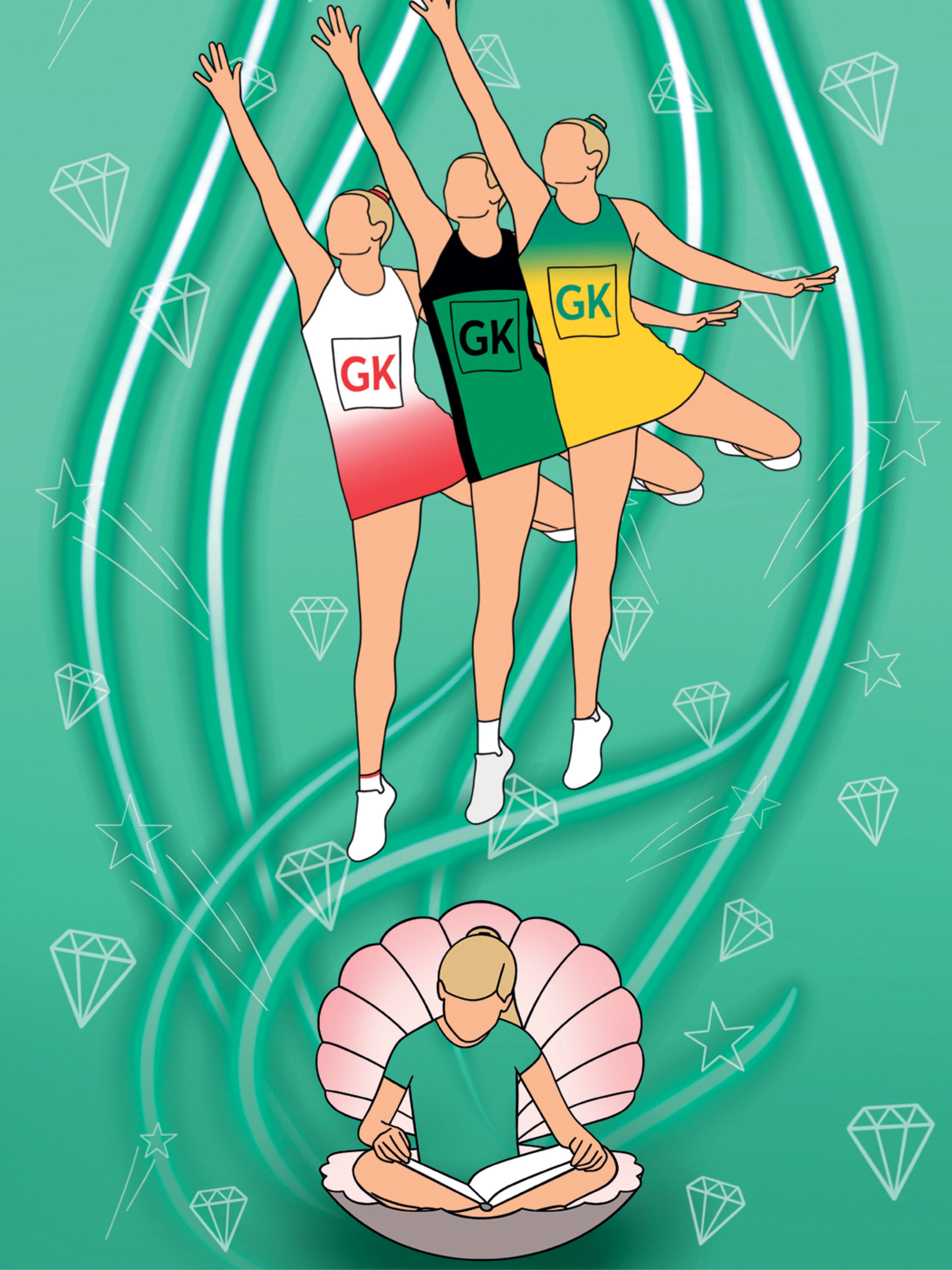
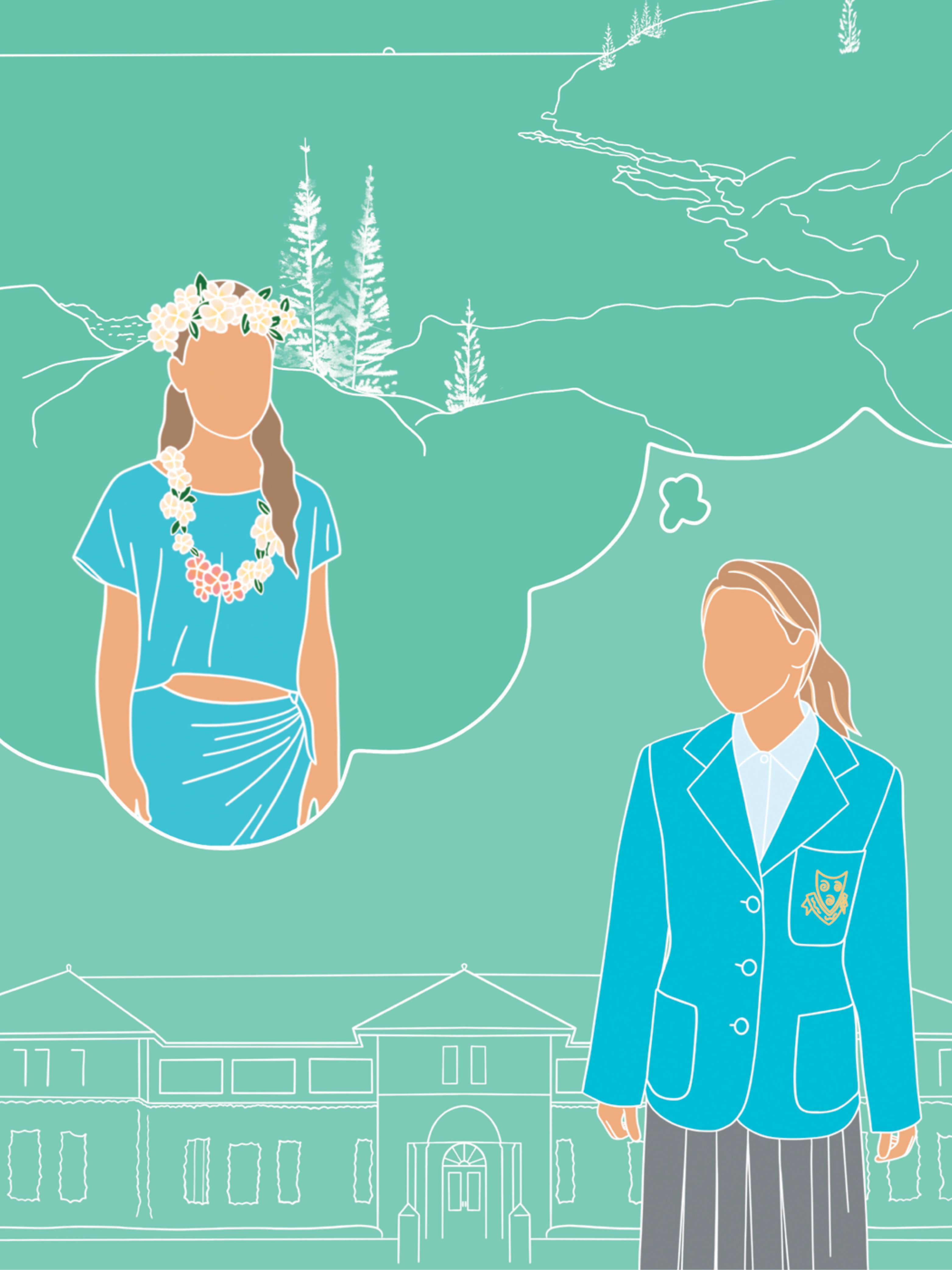
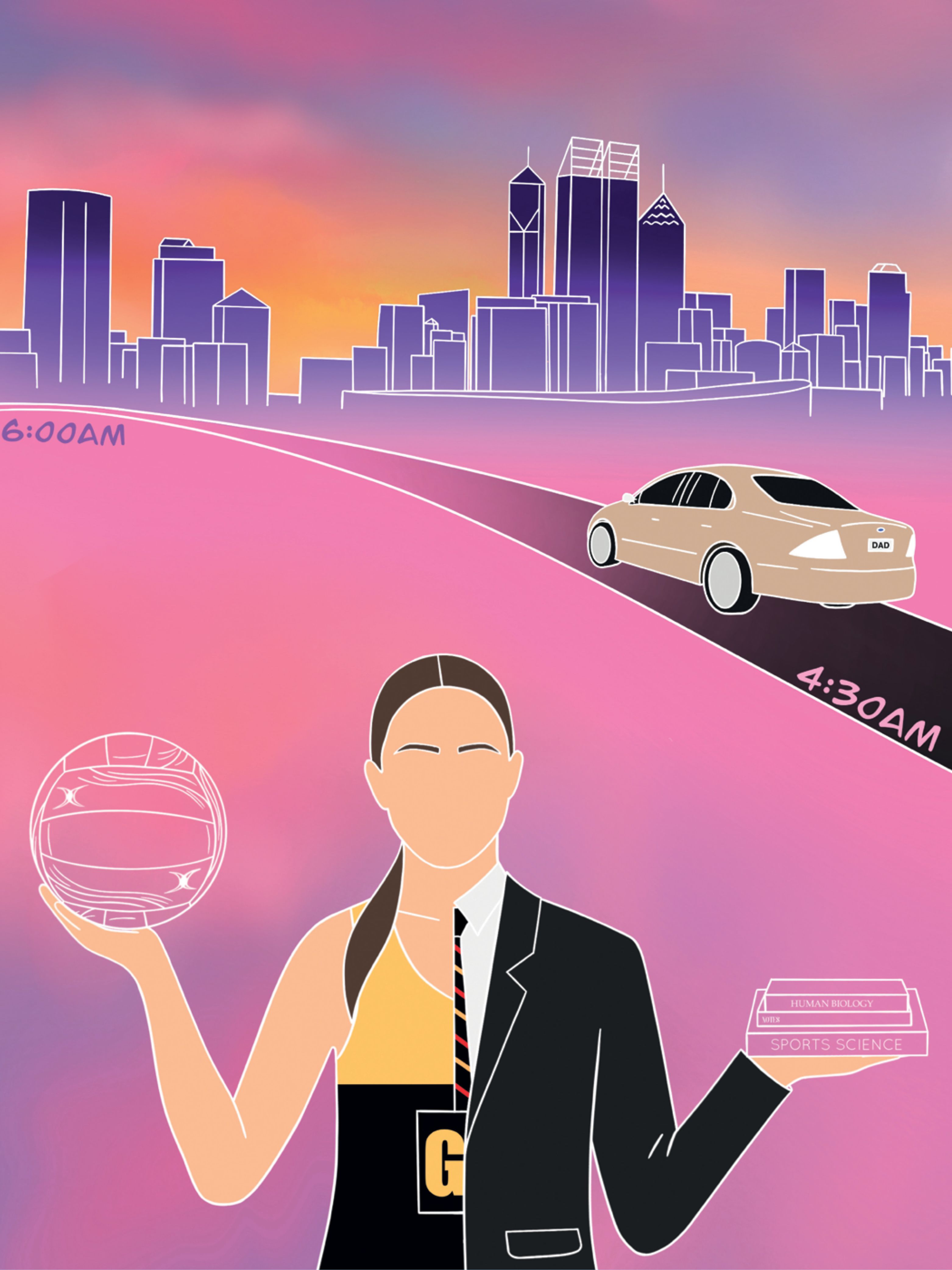
Taya Olman
Accomplish your goals, and help others to achieve theirs
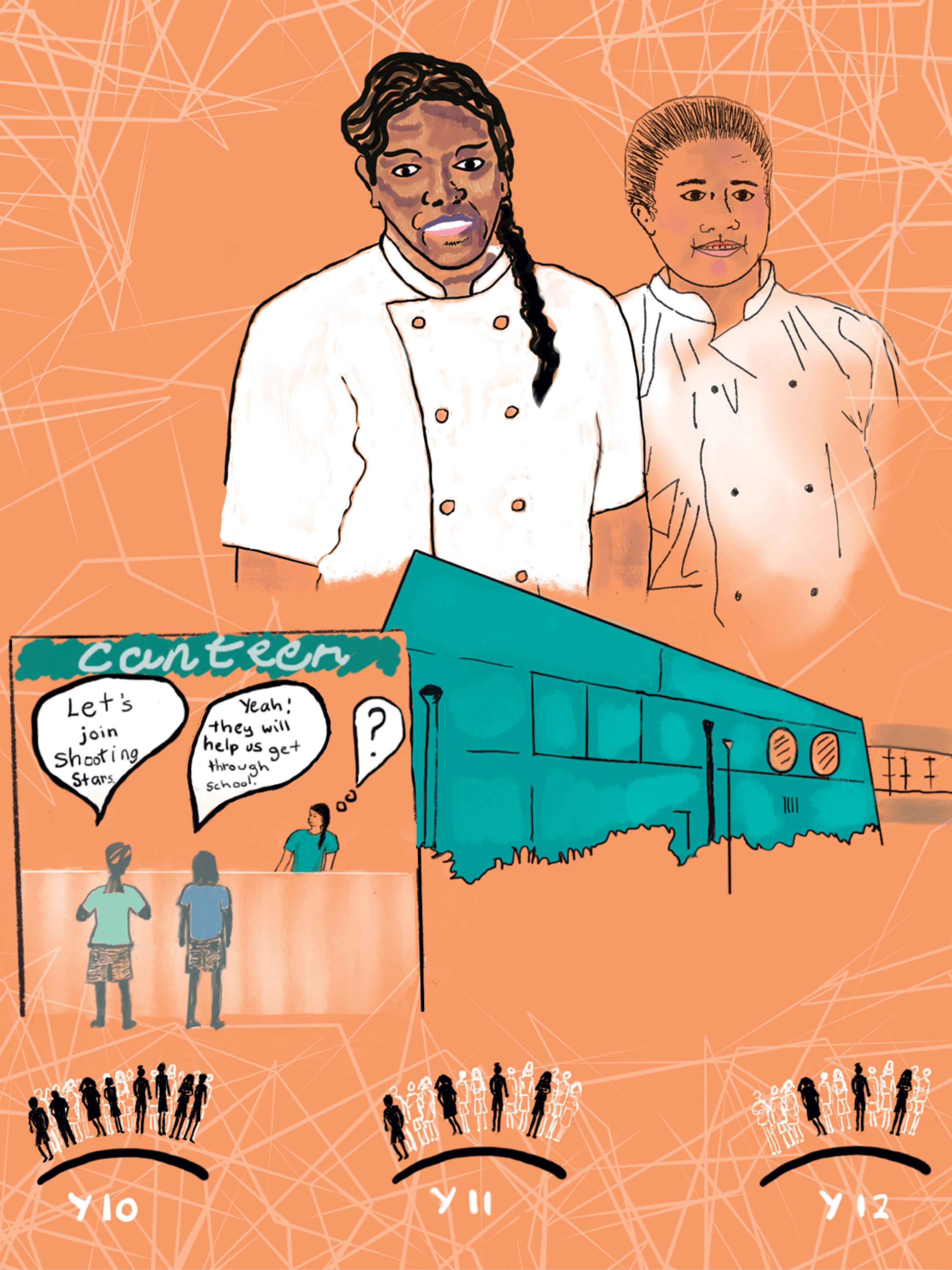
I’m a twenty-year-old Noongar woman from Narrogin. I’ve lived in Narrogin for the majority
of my life. In Year 7 I moved to Mandurah, but
I didn’t like it up there—I didn’t want to be up there anymore. That was a big turnaround in my life. My older sister and I moved back to Narrogin with my aunty and uncle. I’ve lived with them for seven years now. They’re my support system—I can go to them for anything. They’re like my parents.
School for me was quite hard. I wasn’t really interested in school, and I wagged classes. But when I got to Year 10, I saw what was happening to everyone else around me, and I didn’t want to be like them. My sister graduated before me, but my two brothers dropped out in Year 11. My mum had dropped out of school, too, and I don’t think my dad finished school either. And out of all of my cousins, there are only two or three who finished school. I saw what their lives were like, and I didn’t want to be like that. I really wanted just to be a somebody, and not known for dropping out. So I used all the negative stuff as a motivation for me. I thought, ‘If I want to make something of myself, then I’ve got to commit to the work and pull my head in.’

Latia Kickett
Feel happy with what you achieve
I’m a twenty-year-old from Narrogin. I’m Noongar and Yamatji—my dad is from Narrogin and my mum is from Geraldton. I’ve lived in Narrogin all my life. I went to school at Narrogin Primary School and Narrogin High School. For me, my supports are my parents and my aunties and uncles. My dad works at the primary and high schools, and my mum works at KEEDAC [Kaata- Koorliny Employment and Enterprise Development Aboriginal Corporation].
I was always the only Aboriginal girl in my year during primary school, and I never had many other Noongar kids in my year at all. I grew up with the wadjela kids, and I’ve always been friends with them. When I went to high school, I didn’t find it that hard, because I’ve always hung out with the wadjela kids in the classroom, and I always had my cousins to hang with at recess and lunch.
Shonitta Gordon
Fight for what you believe in
I’m from Halls Creek, but I grew up out of town— I lived out on a cattle station. Horseriding is in my blood; rodeos, too. My mum is a strong woman— that’s where I get it from. I’m very outspoken. I can be too much for my dad sometimes!
I started my schooling in Halls Creek—from kindy until Year 10—and then I decided to go away to boarding school down in Perth. When I first went down there, I cried for a whole term to come home. Then I thought, ‘Alright, time to put your big-girl shoes on and do this.’
Saripha (Fefe) Seser
Do what feels right, do what feels good
I lived in Karratha for most of my life, until Year 9 when I went to boarding school in Perth. I didn’t like it, so I went back to Karratha. Then Mum decided, because of stuff that had happened with our family, that we had to move. Mum said, ‘Let’s go home,’ and home is Carnarvon, so we moved to Carnarvon when I was in Year 10.
I told Mum that I didn’t want to go back to school, because everything just crushed my dreams. Mum said, ‘Go to school for a week, and see how it is.’ She knew that if I didn’t go back to school, I wouldn’t be on a good path. So I went to school. I went for that week.
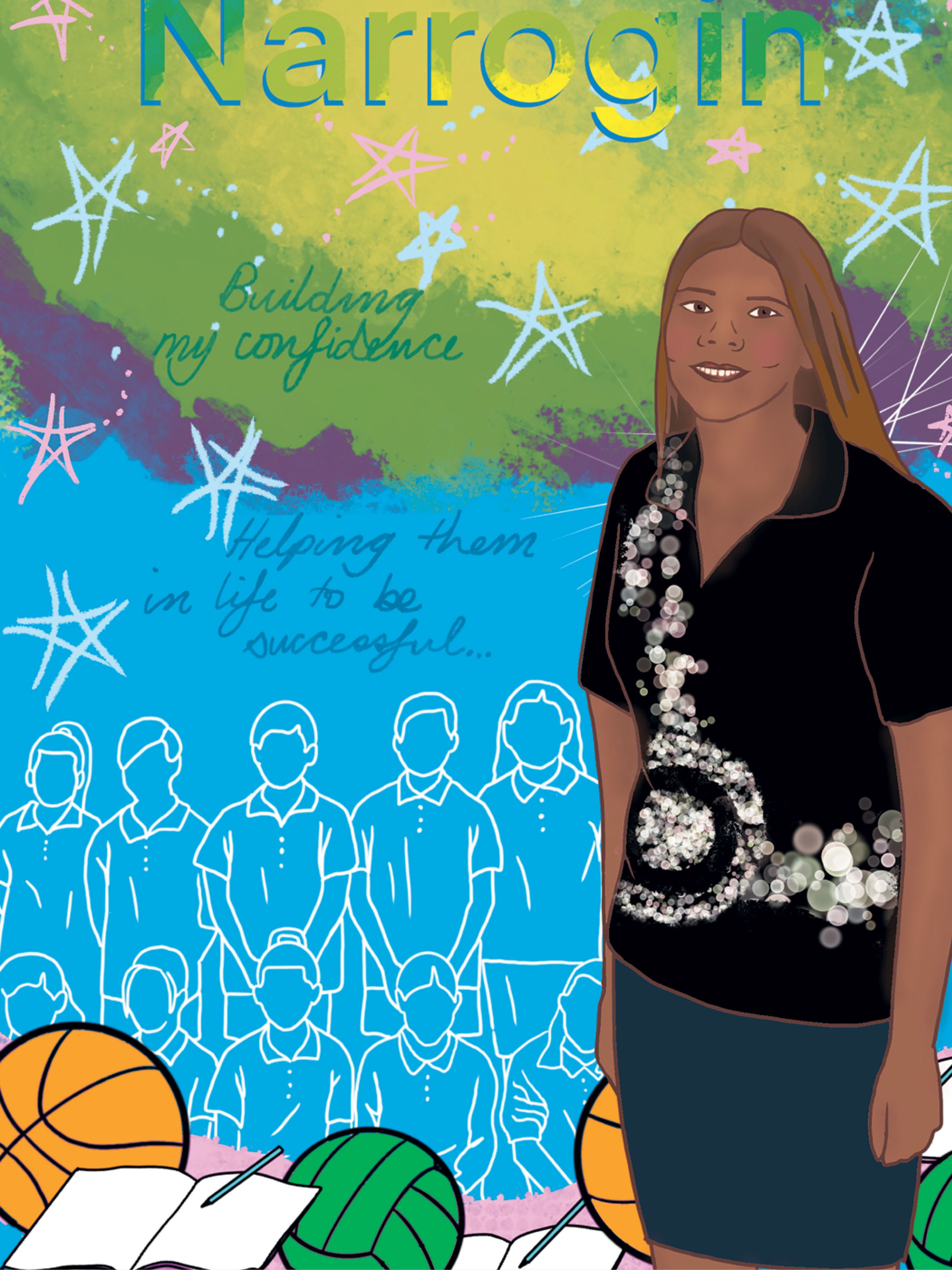
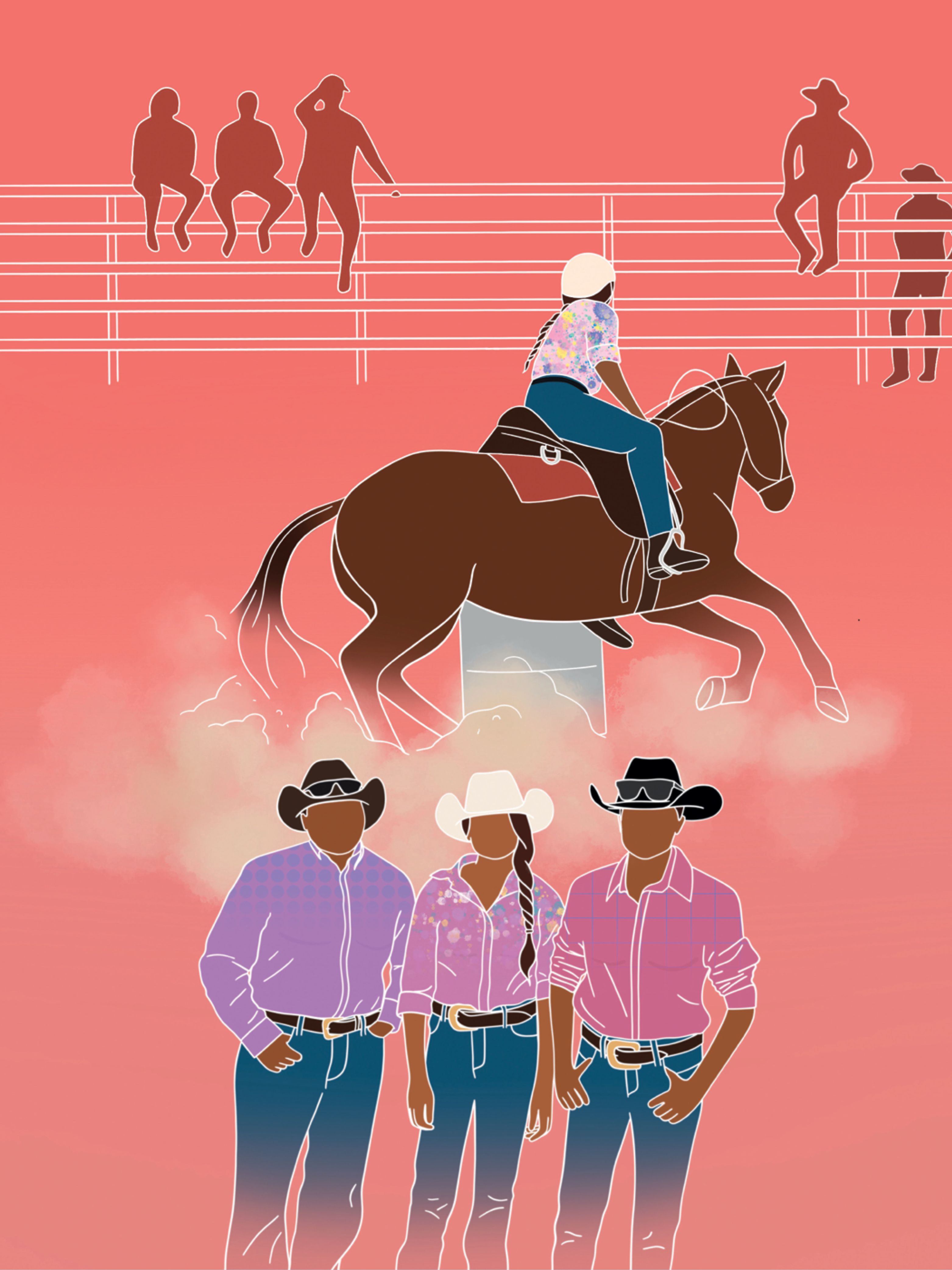
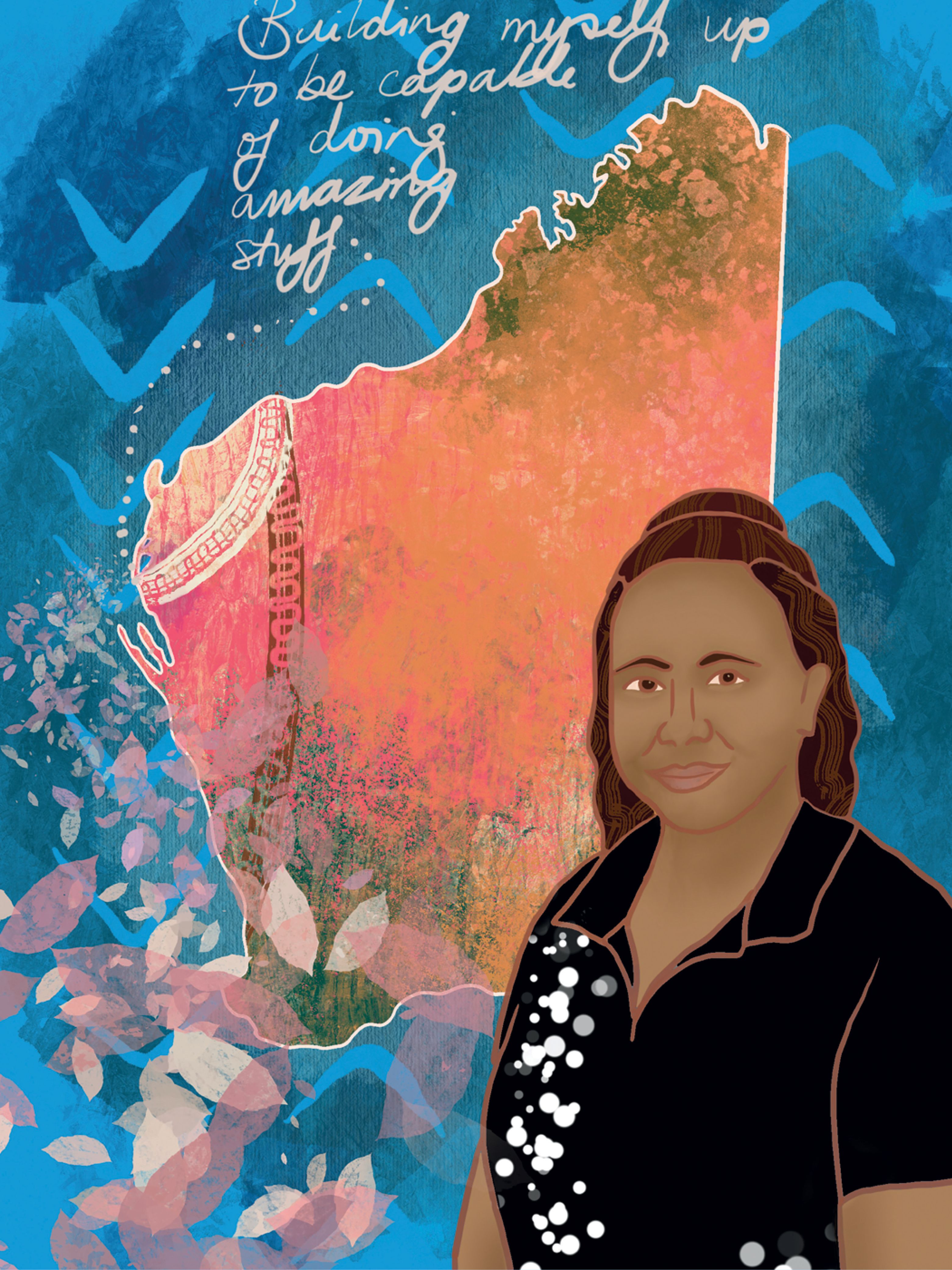
Want to read the rest of these amazing stories? Buy yourself a copy of Kaya Kwopetok Koorlang Yok here.
Shooting Stars acknowledges the traditional owners of country throughout Western Australia, and recognises their continuing connection to land, waters and community. We pay our respect to them and their cultures, and to Elders both past and present.
Ngalak kaaditj Wadjak moort keyen kaadak nidja boodja.
We acknowledge Noongar people as the original custodians of theland on which our office sits.

